Biscayne Bay Marine Health Coalition
The goals of the Biscayne Bay Marine Health Coalition are to: Identify strategies & policies that will support the creation of a plan of action focusing on the design of an enhanced Biscayne Bay Best Management Practices (BMPs) Guide.
BMPs to be focused on specific practices, or a combination of practices, to include scientific, technological, institutional and economic considerations, identified as effective and practicable means of preventing or reducing the amount of pollution generated by point sources and nonpoint sources of pollution throughout the Bay.
BISCAYNE BAY MARINE HEALTH COALITION
Our Vision: A Sustainable and Healthy Biscayne Bay
+About Us
The Biscayne Bay Marine Health Coalition (BBMHC) is a group of independent volunteers (our “Steering Committee”) committed to promoting a healthy Biscayne Bay. We collaborate with local government agencies, academic institutions, businesses and nonprofits in order to achieve our goals.
Stormwater Management: Keeping Trash, Pollution and Nutrients out of Biscayne Bay
Zoom Webinar - February 19, 2021-10:30AM US Eastern Time
The Biscayne Bay Marine Health Coalition (BBMHC) organized this webinar for Stormwater and Public Works professionals to share about their work to keep trash, pollution and nutrients out of Biscayne Bay, Florida.
Participating organizations:
Miami-Dade County
City of Aventura, FL
City of Miami, FL
City of Miami Beach, FL
University of Florida
SOP Technologies
VolunteerCleanup.org
Questions addressed:
- What are the regulatory requirements to prevent trash, pollution and nutrients from entering the Bay?
- What is the correlation between natural debris (e.g. leaves and grass) and nutrient pollution?
- How are local Public Works departments minimizing stormwater pollution?
- What are the most cost-efficient ways to collect stormwater runoff?
2020 Biscayne Bay Marine Health Summit (BBMHS) - Town Hall
October 2, 2020 (virtually via Zoom)
On October 2, 2020, we held the Biscayne Bay Marine Health Summit Town Hall virtually. The event included informative presentations on the State of the Bay and on the Biscayne Bay Task Force's Recommendations. Below, we have included all presentation slides for download, as well as the town hall video.
+ Speakers & Agenda
- Introduction and Opening Remarks: Emilio Lopez (Biscayne Bay Marine Health Summit Steering Committee, and SOP Technologies)
- Summary of the Biscayne Bay Task Force (BBTF) Recommendations:
- Irela Bagué (BBTF and Bagué Group)
- Dr. Tiffany Troxler (BBTF and FIU)
- Panel Presentations: Moderated by Mario Ariza (Sun Sentinel)
- Emilio Lopez (BBMHS & SOP Technologies)
- Dr. Todd Crowl (FIU)
- Rachel Silverstein, Ph.D. (Miami Waterkeeper)
- Dave Doebler (VolunteerCleanup.org)
- Patrick Shearer, P.E. (E Sciences)
- Governance Q&A: Moderated by Mario Ariza
- Lee Hefty (Miami-Dade County Department of Environmental Resources Management (DERM))
- Calls to Action: Steve Sauls
- Closing Remarks: Mario Ariza (Sun Sentinel)
BBMHS Town Hall Recording
2020 Summit Town Hall Sponsors
Recent news: Biscayne Bay Task Force (BBTF) Report and Recommendations
BISCAYNE BAY SUMMIT Newsletter & ARTICLE/Action Submission FORM
The Biscayne Bay Summit newsletter is for promoting post-Summit preservation and restoration initiatives being taken or considered by key Biscayne Bay Stakeholders. Sharing an article/action via this form authorizes the summit steering committee to share the information publicly via email, social media and other communication channels. For questions about the newsletter, please contact Luiz Rodrigues at BiscayneBaySummit@gmail.com
Download past newsletters
April 2020 | May 2020 | June 2020 | July 2020 | August 2020 | September 2020
2019 Biscayne Bay Marine Health Summit: The Action Summit
September 20, 2019 at the FIU Biscayne Bay Campus in Miami, FL
Identify strategies & policies that will support the creation of a plan of action focusing on the design of an enhanced Biscayne Bay Best Management Practices (BMPs) Guide.
BMPs to be focused on specific practices, or a combination of practices, to include scientific, technological, institutional and economic considerations, identified as effective and practicable means of preventing or reducing the amount of pollution generated by point sources and nonpoint sources of pollution throughout the Bay.
The Biscayne Bay Marine Health Summit Working Groups were created during the 2017 Biscayne Bay Marine Health Summit, and brainstormed solutions. Since then, the Summit Working Groups, totaling over 600 stakeholders, convened four times to discuss, further synthesize and vote upon all 2017 recommendations. On September 20th, 2019, we came together once again to develop and vote on the top 2019 Biscayne Bay Marine Health Summit Committees’ Official Recommendations.
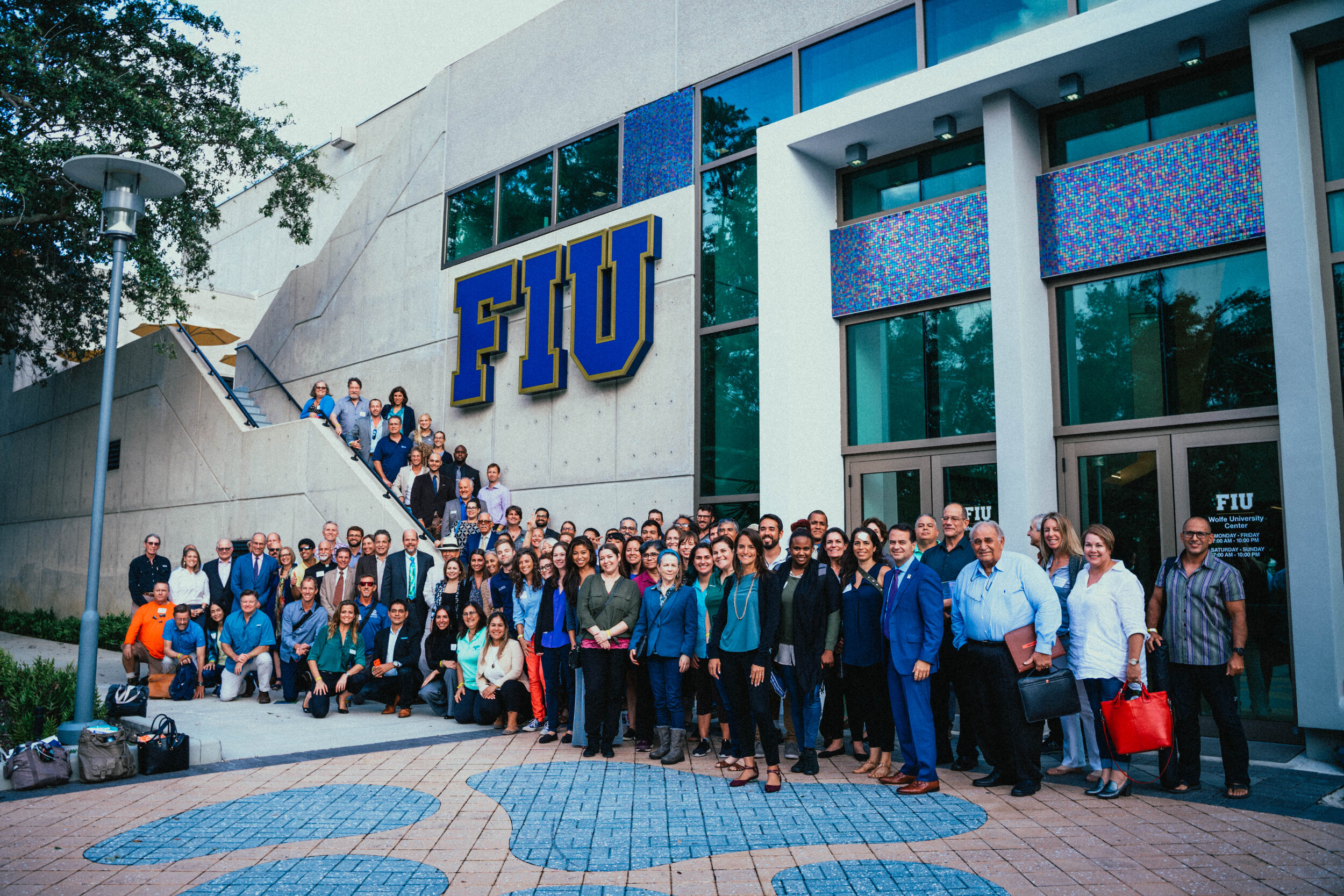
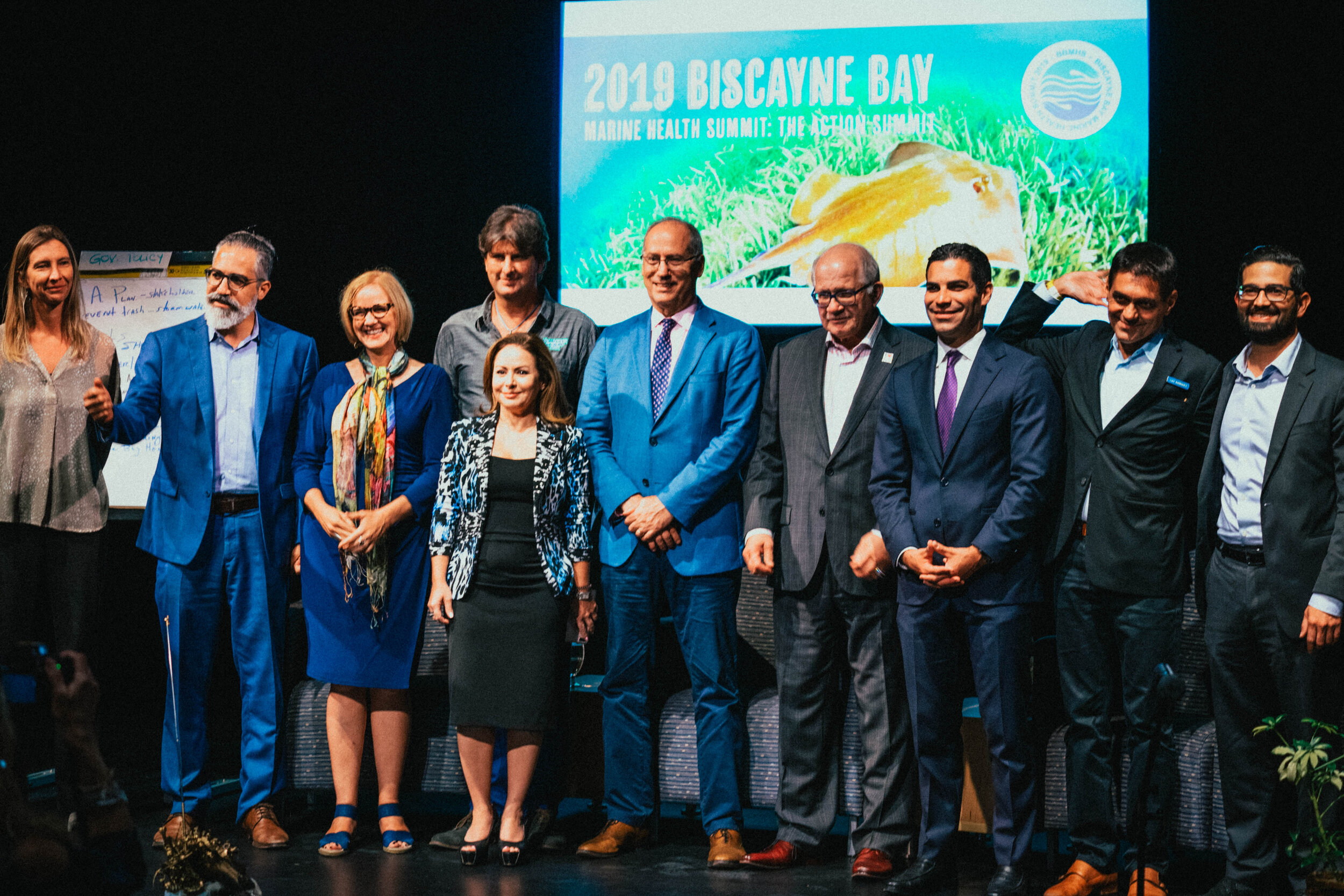
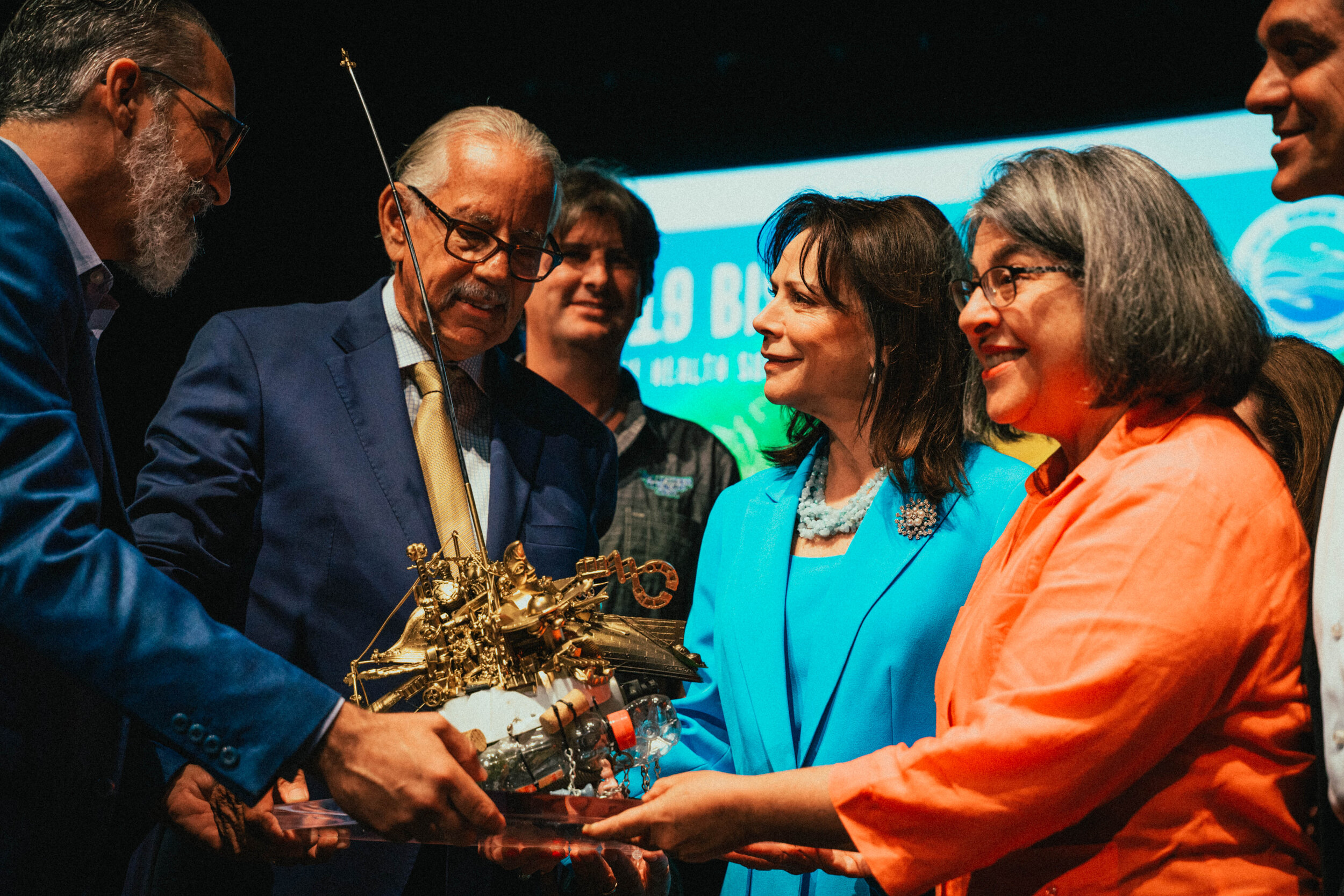
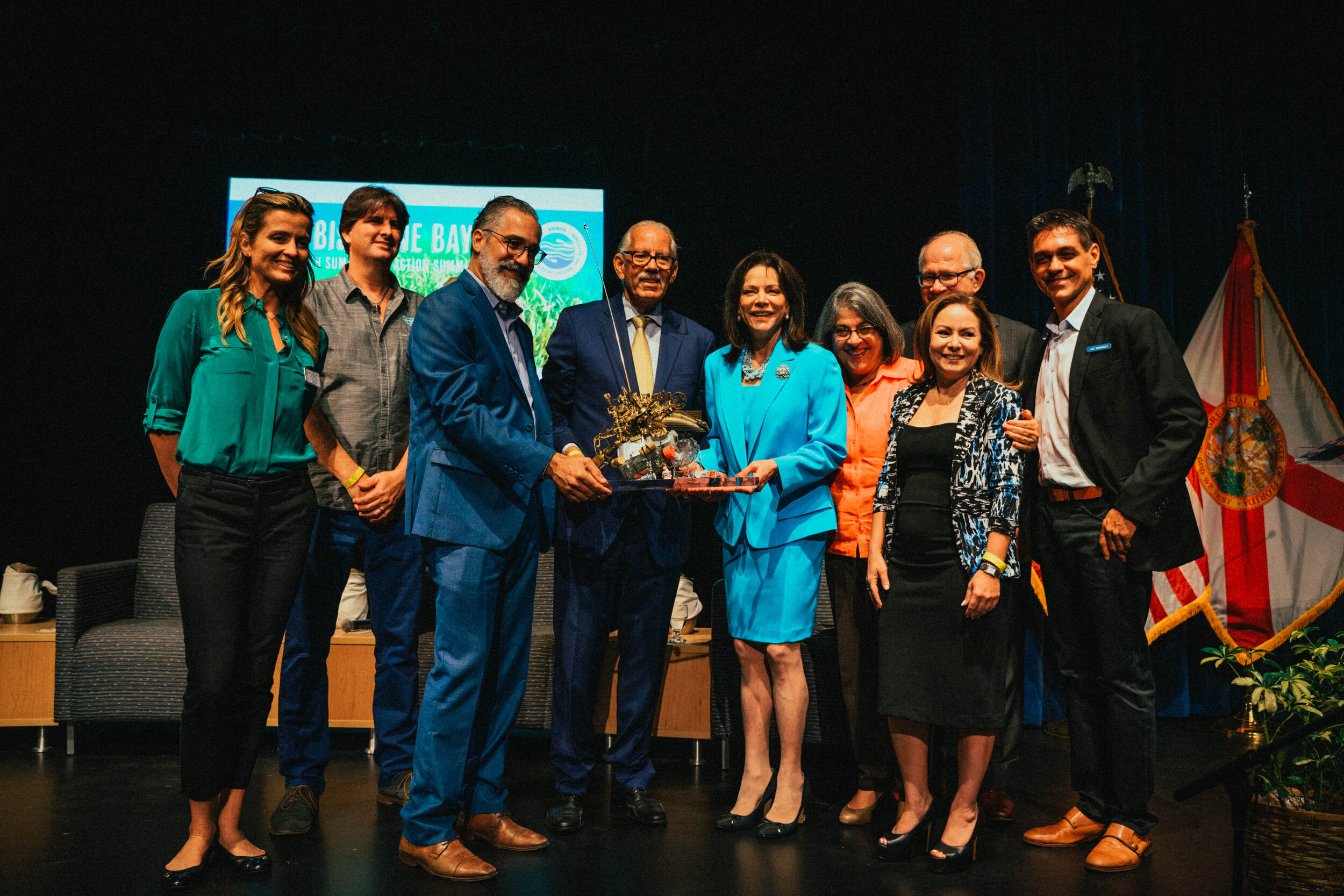
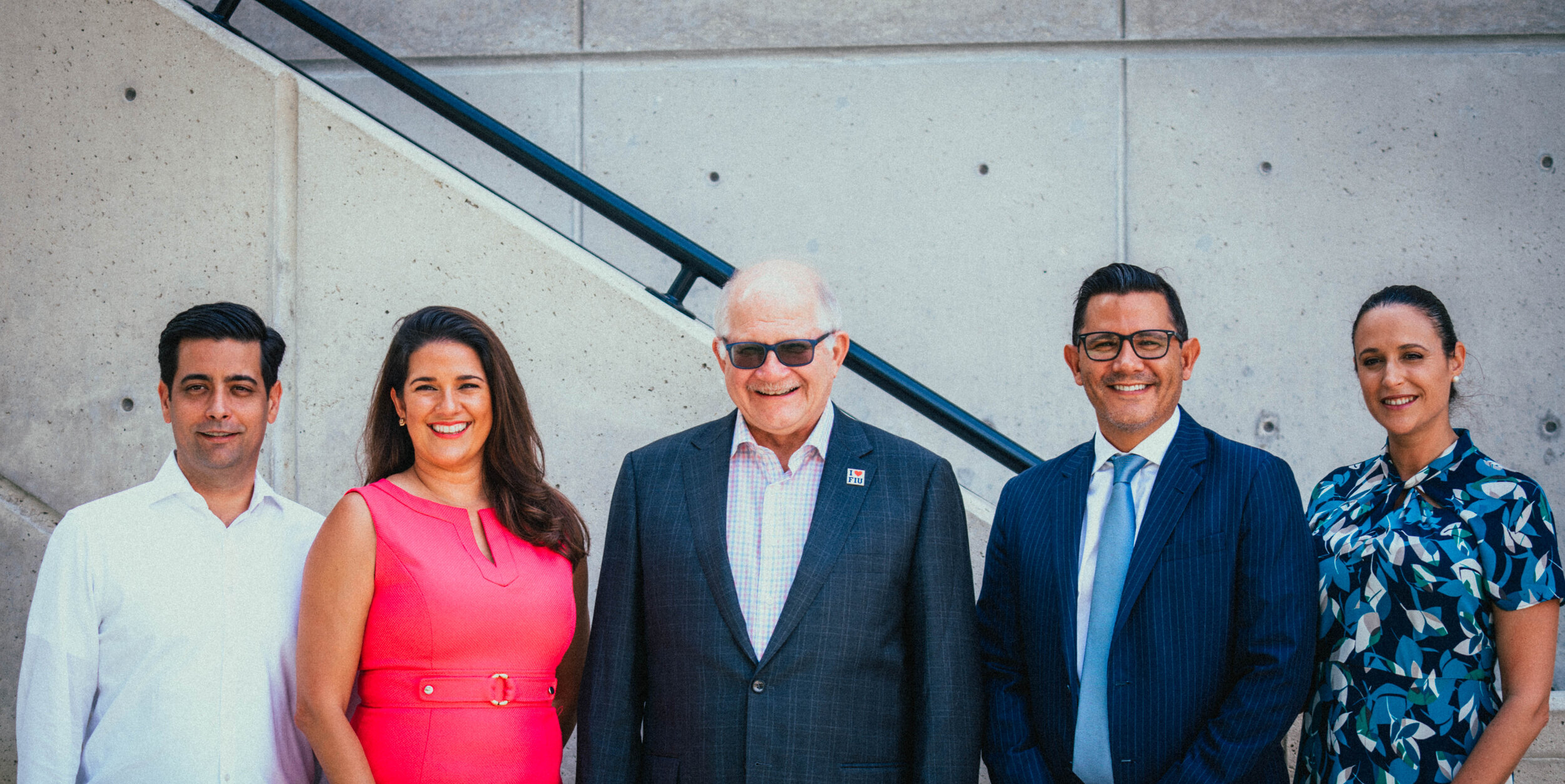
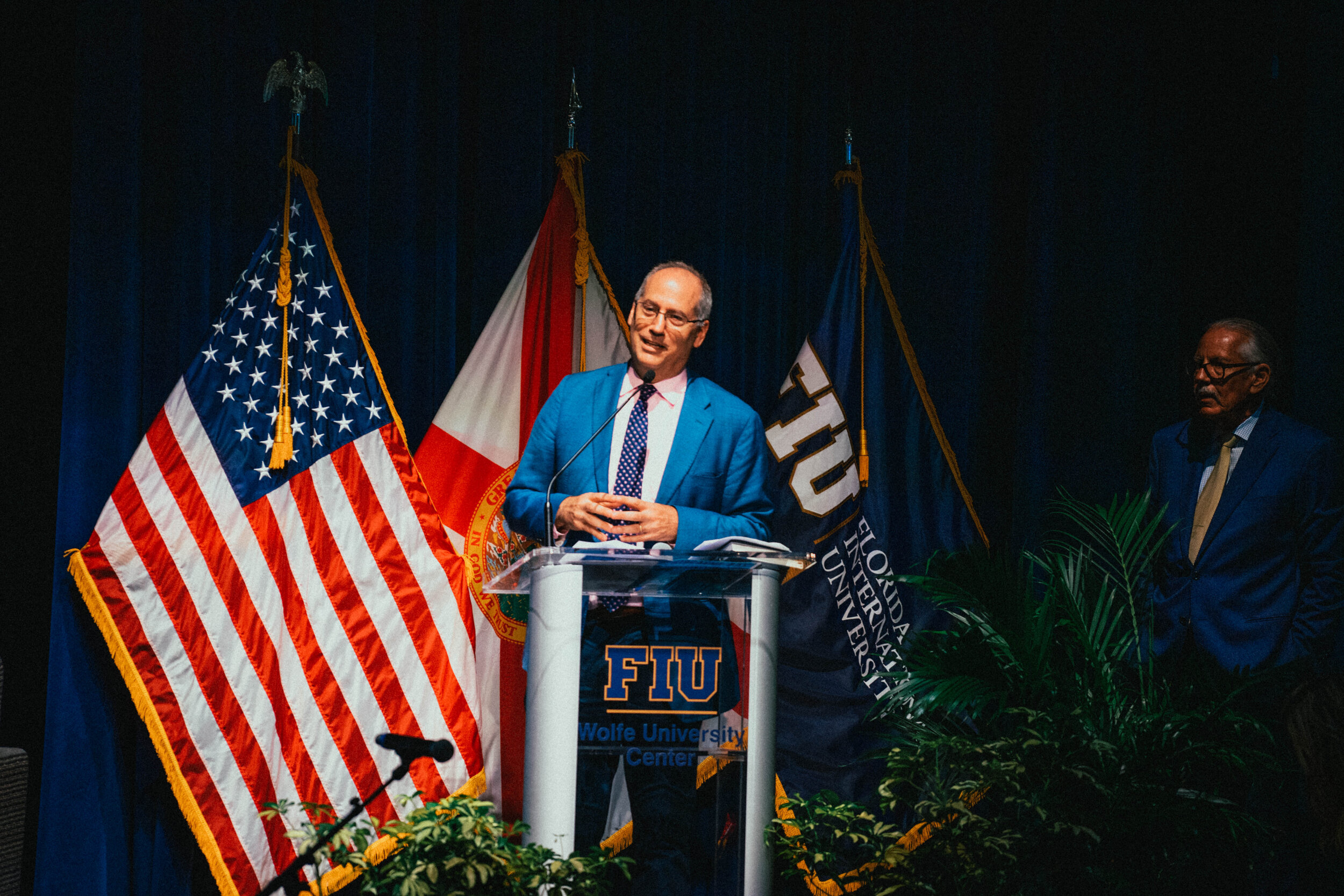
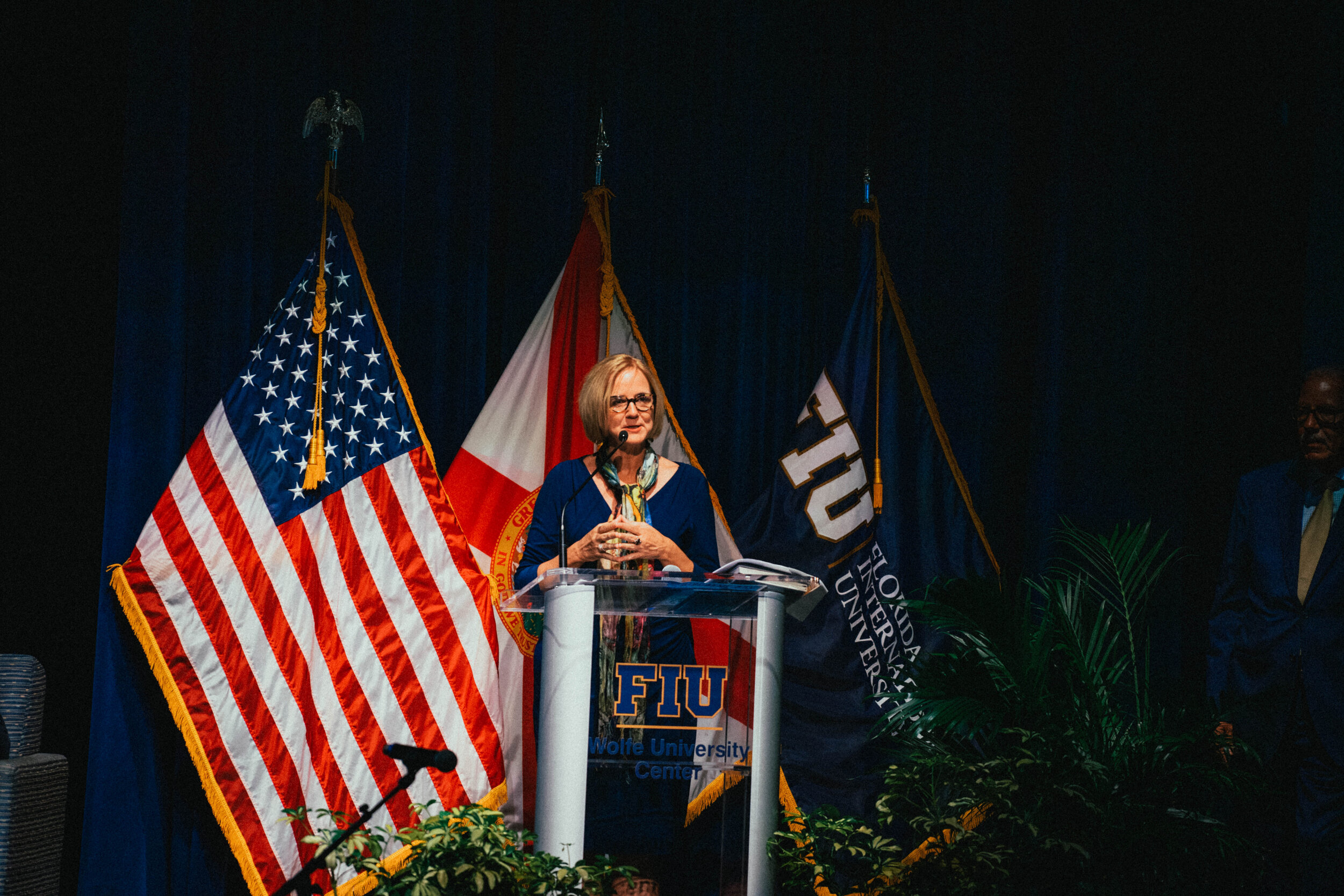
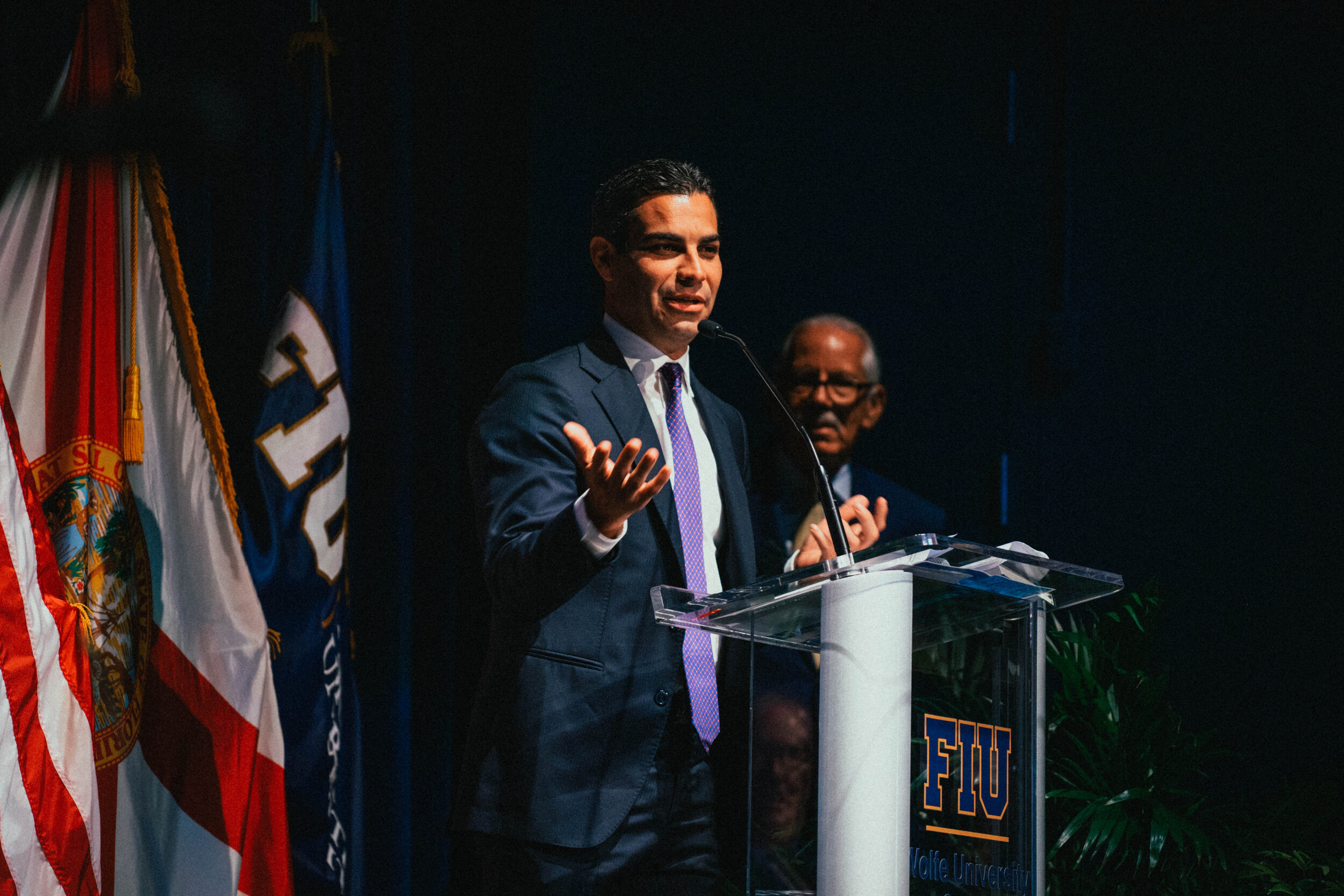
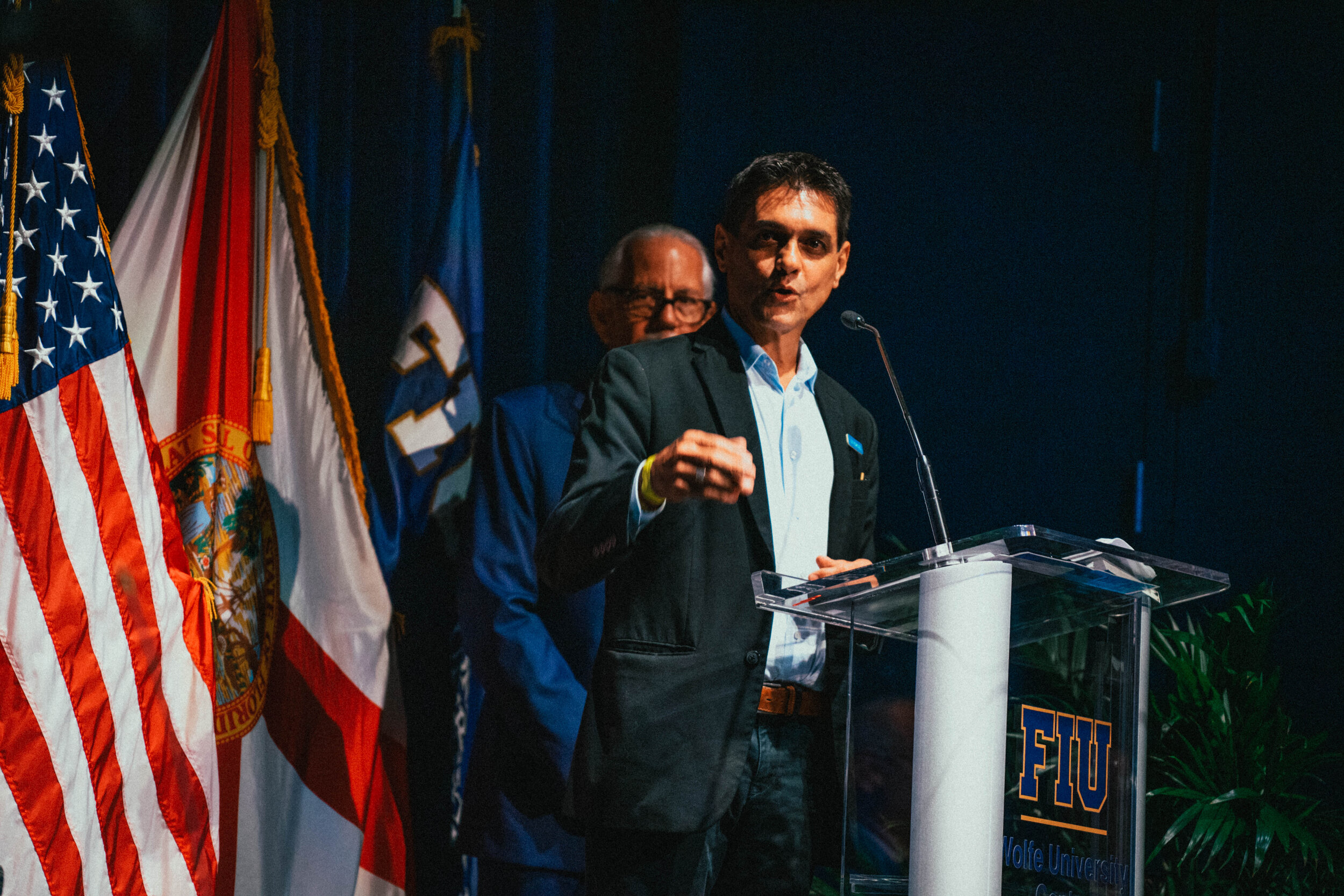
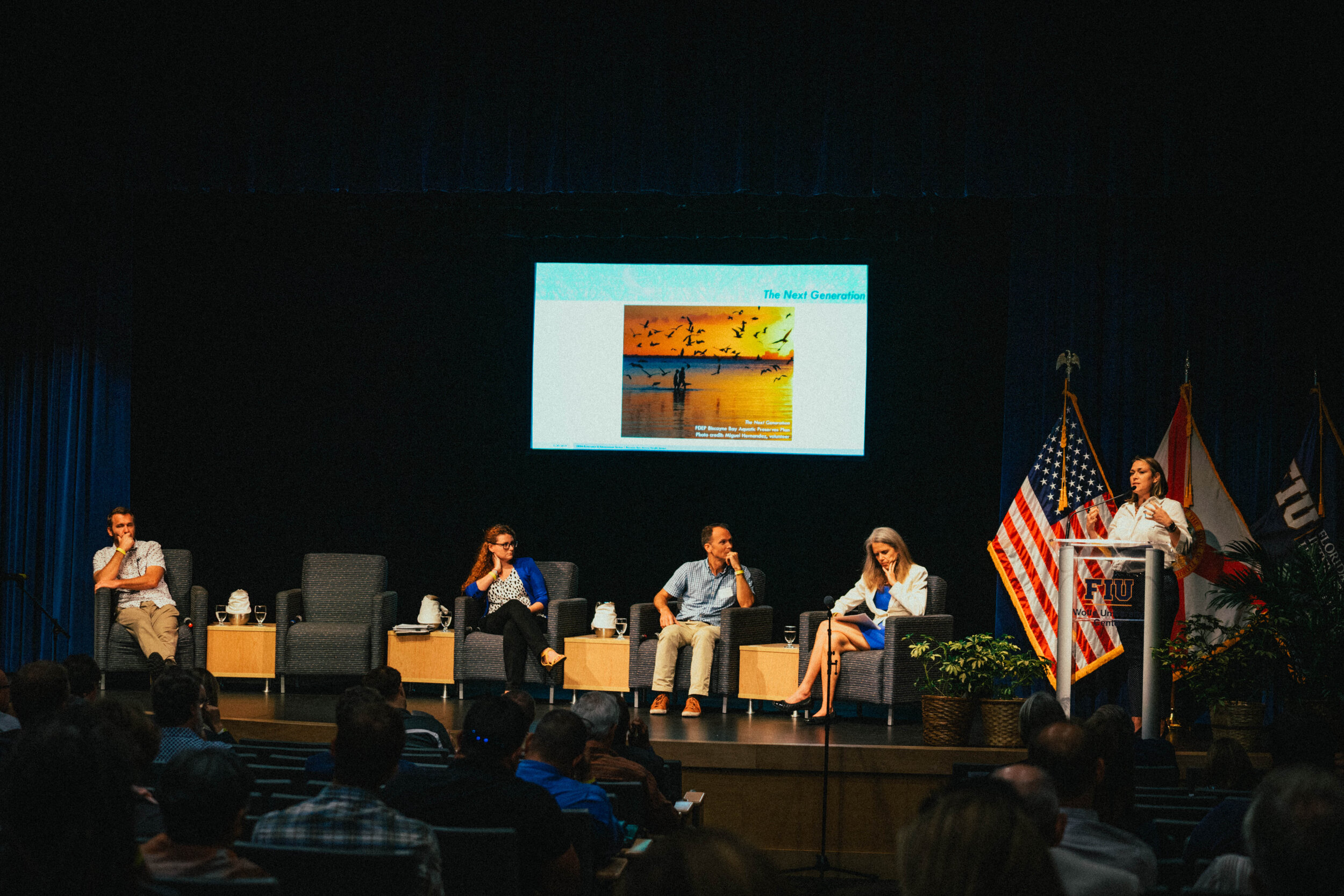
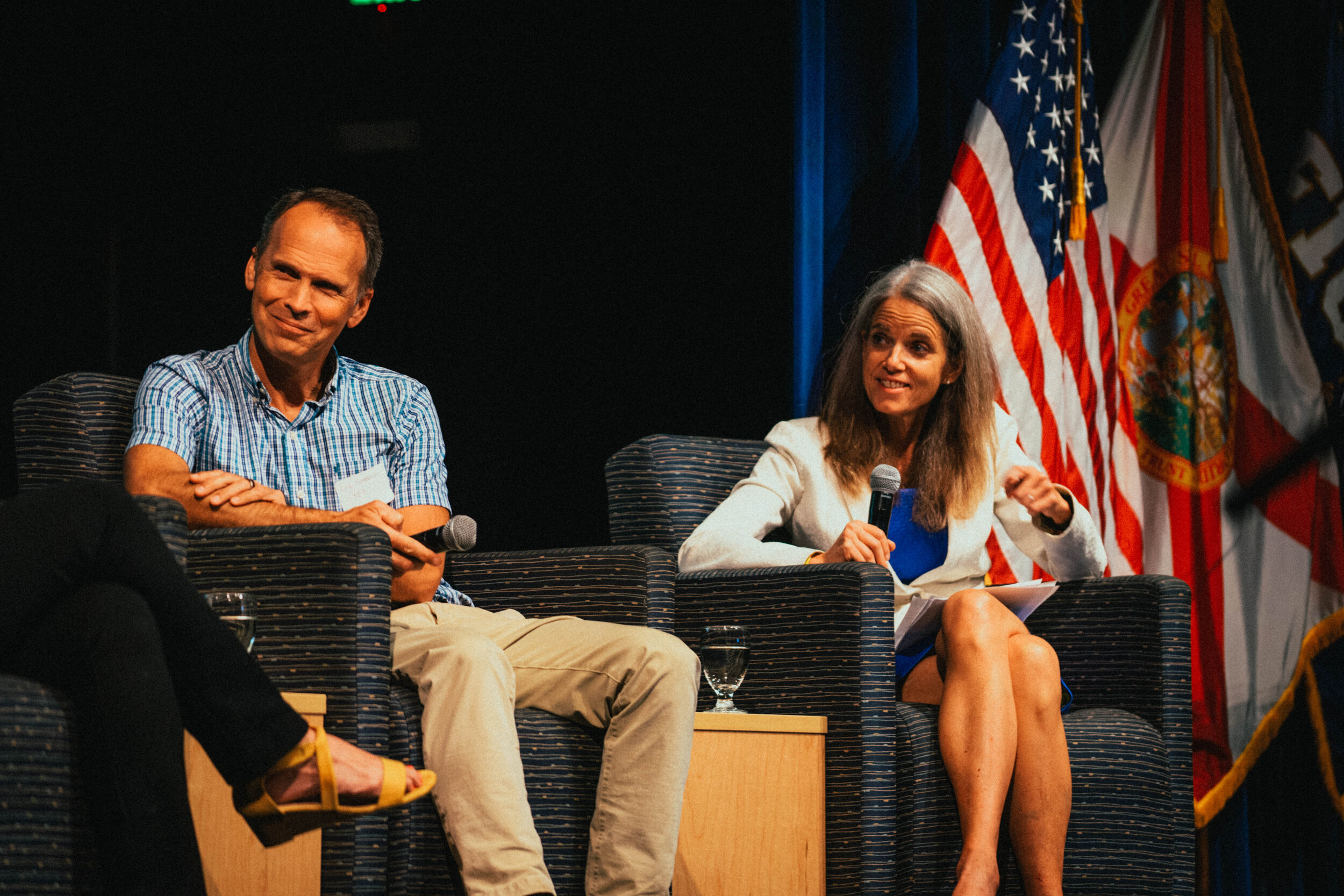
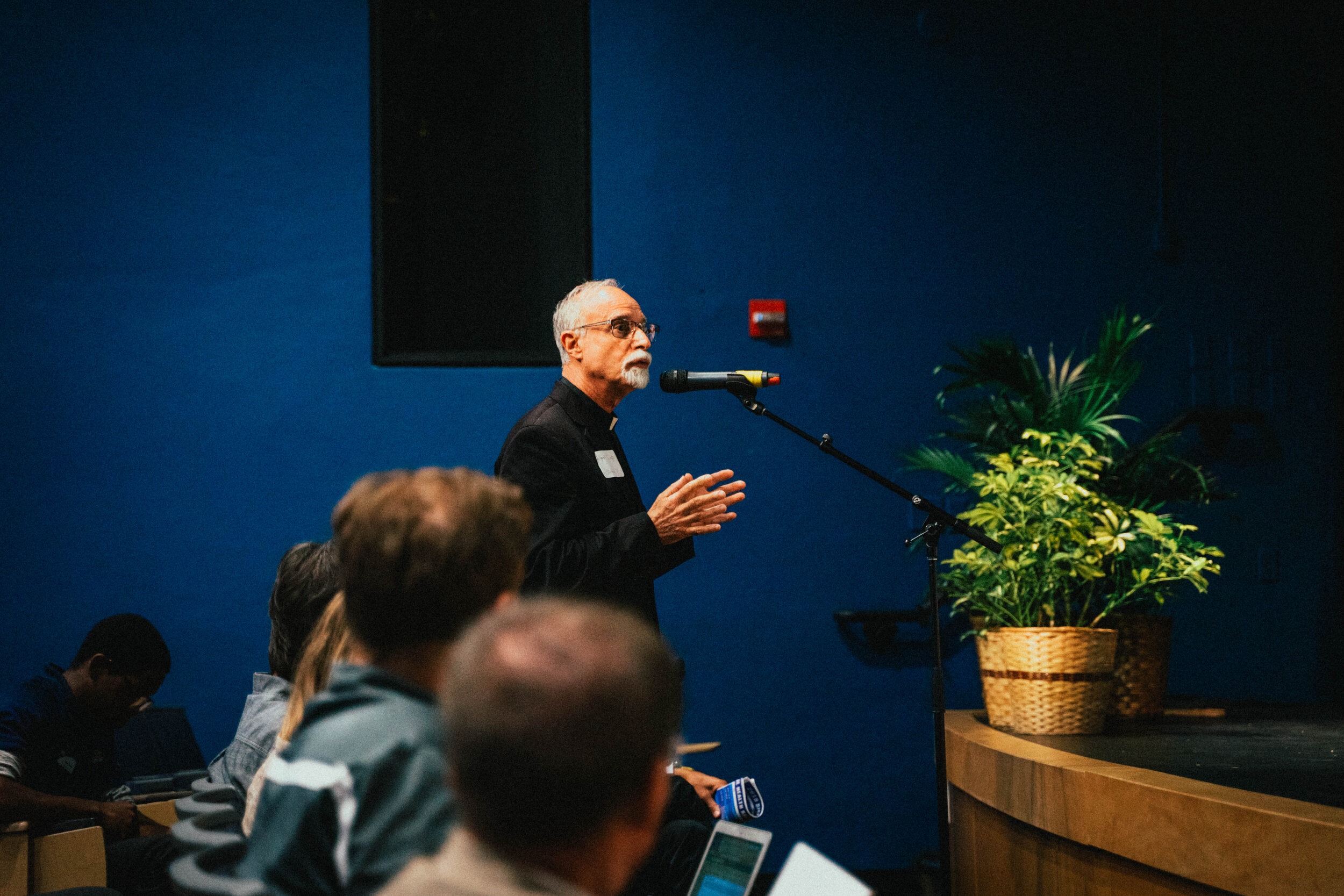
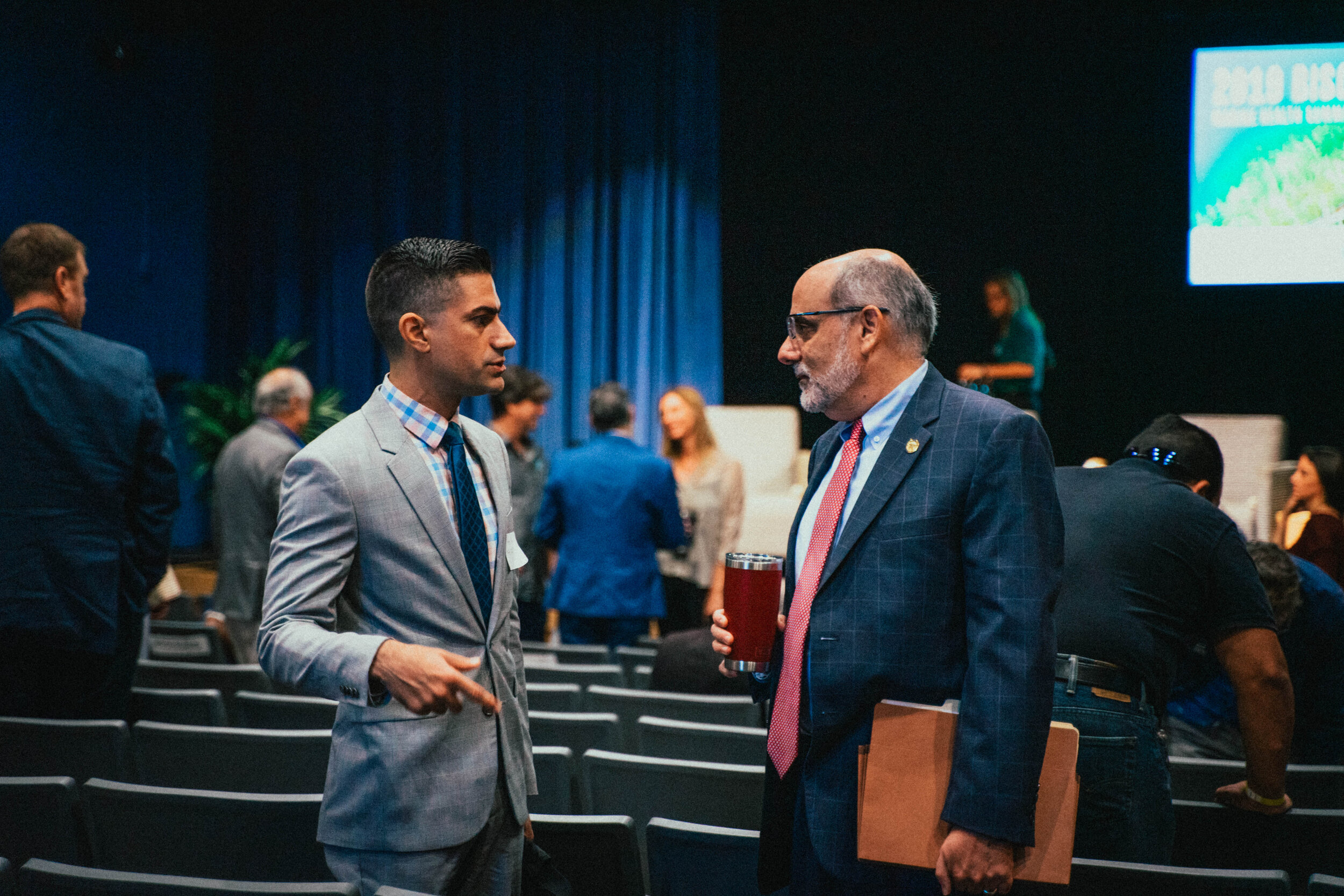
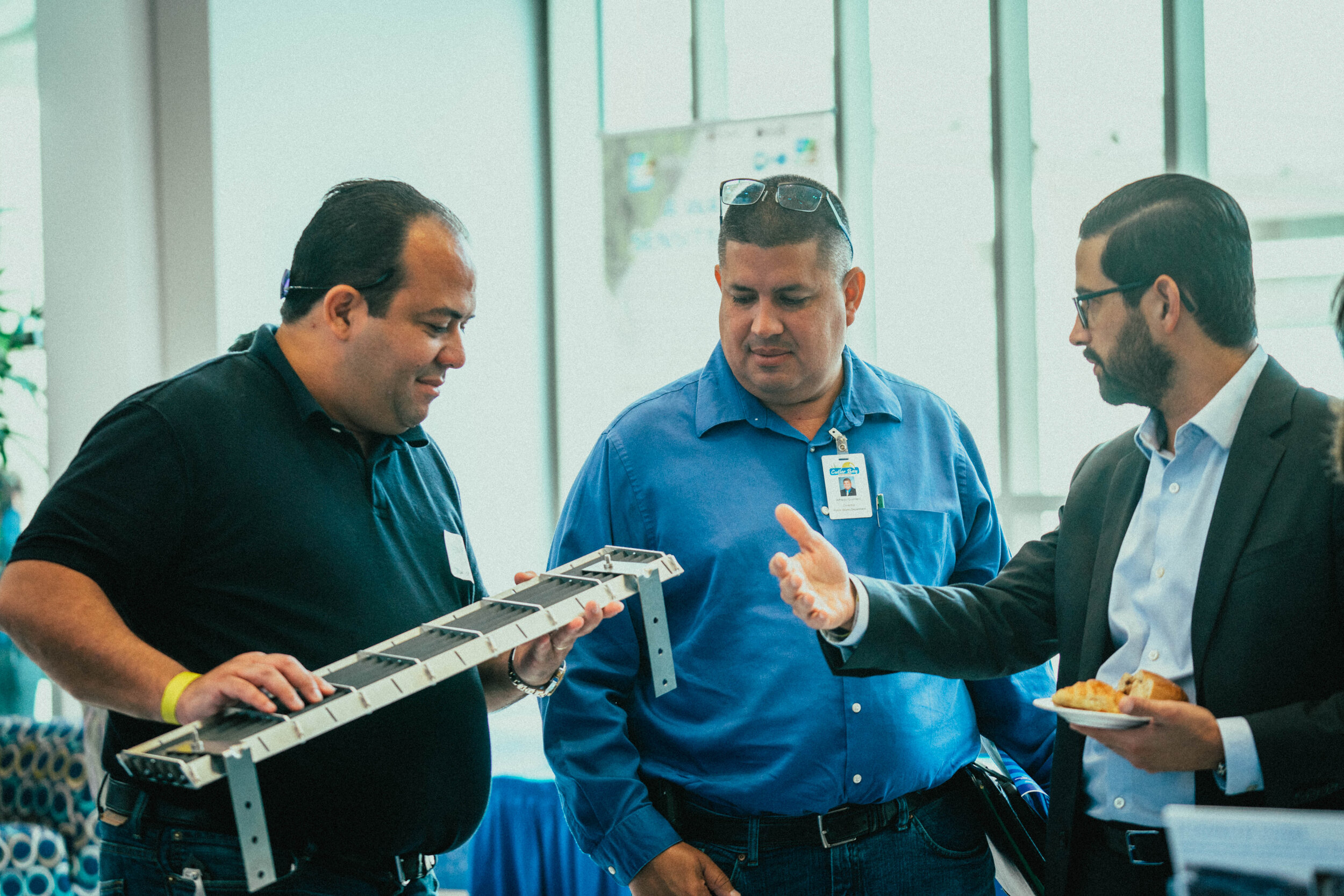
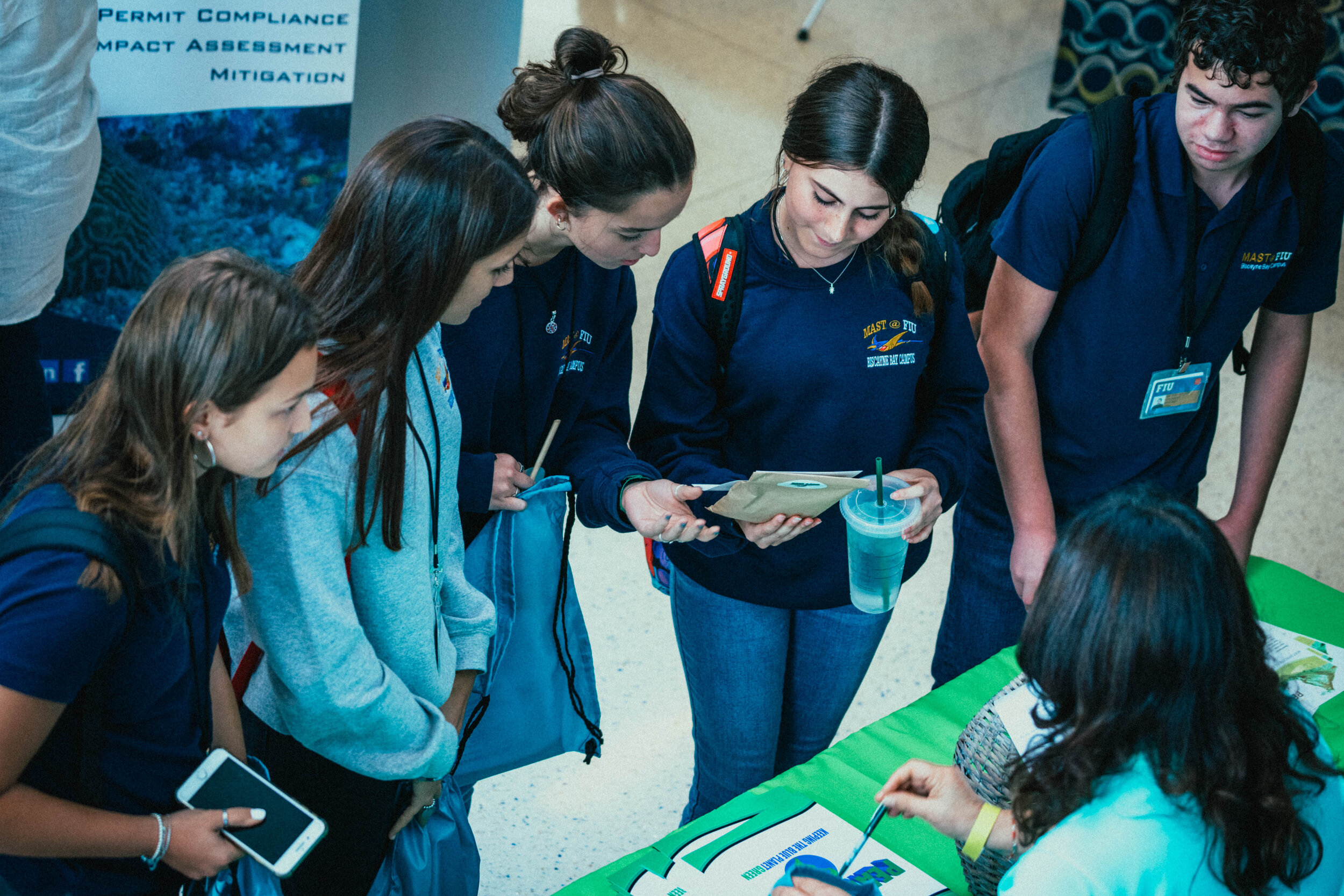
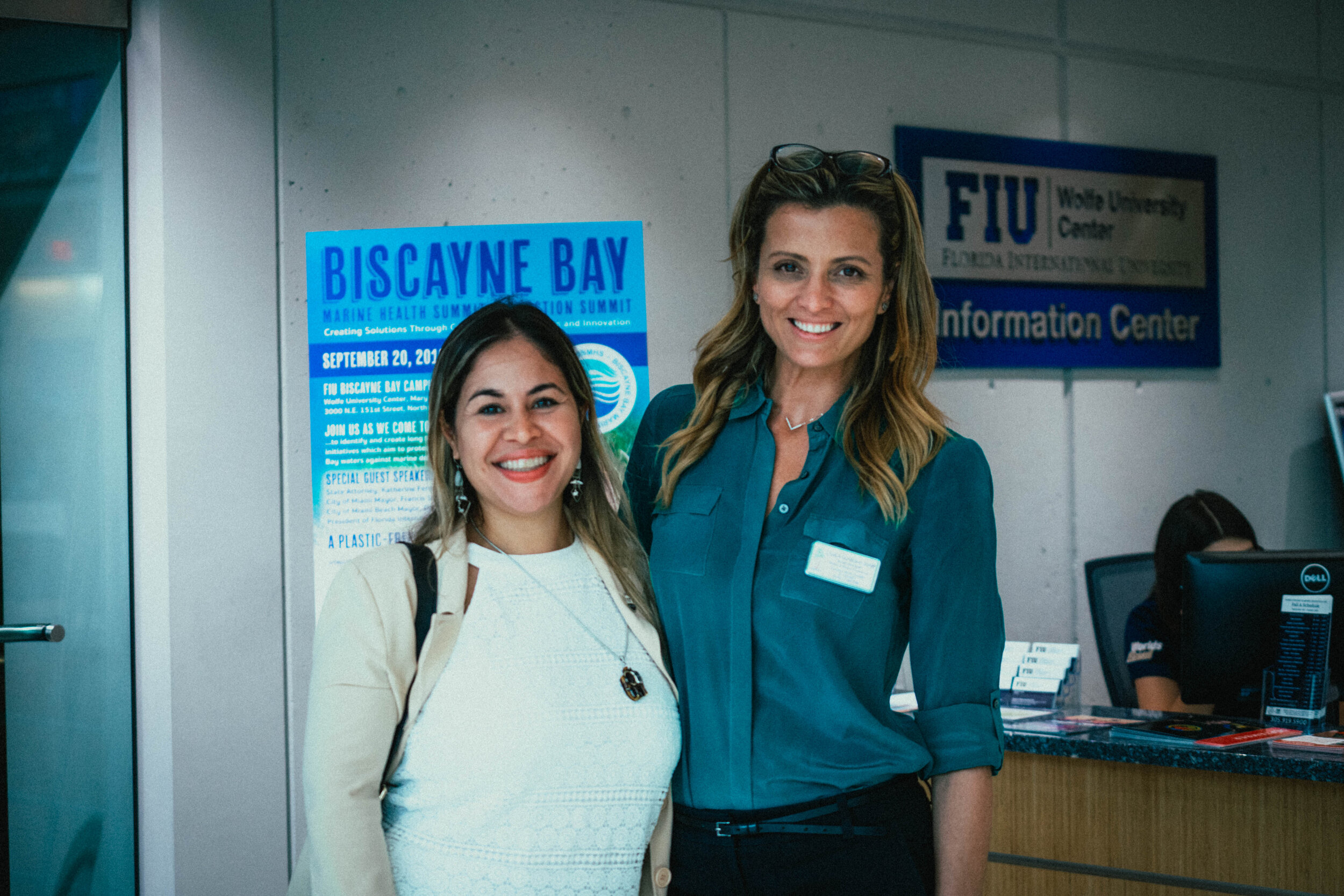
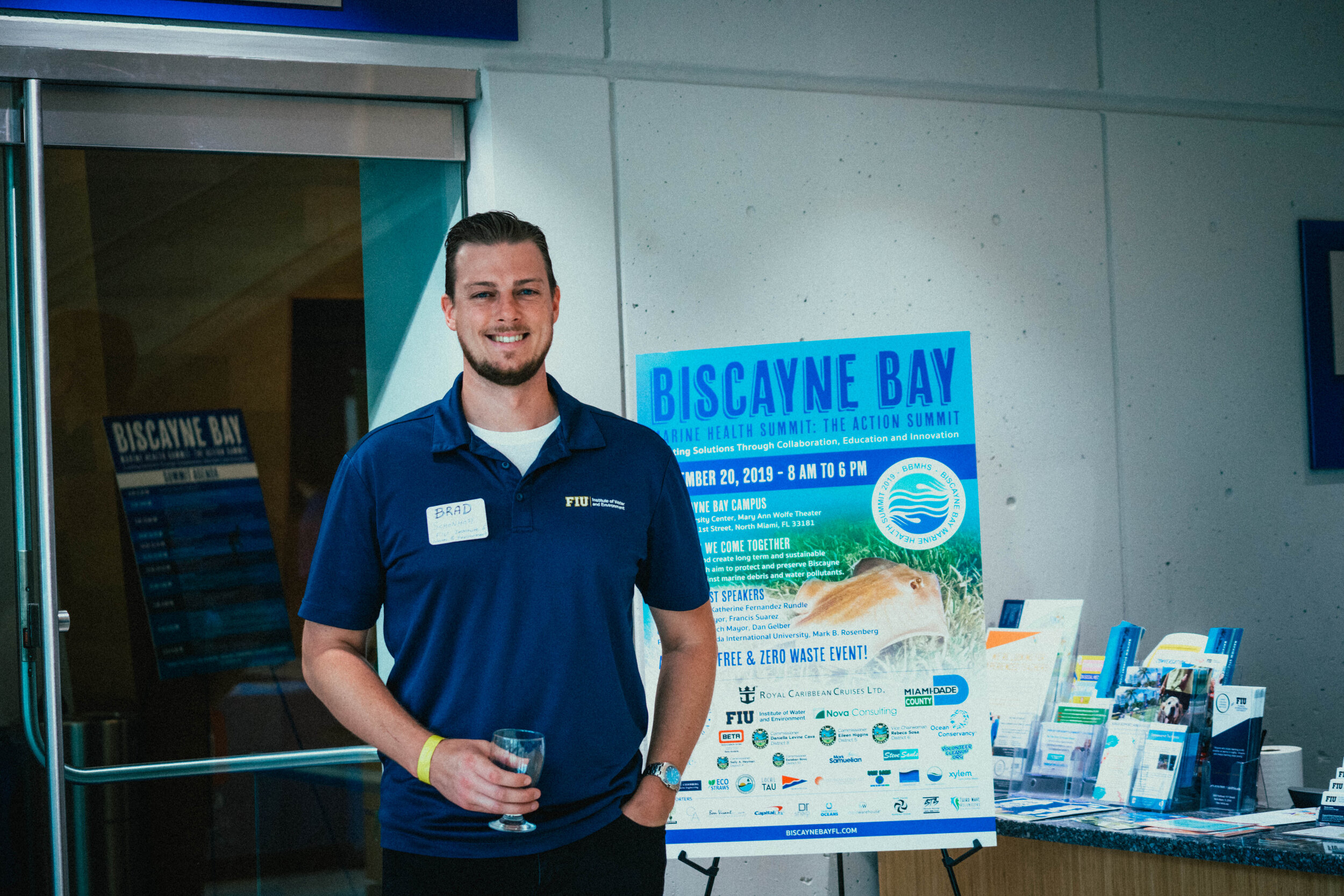
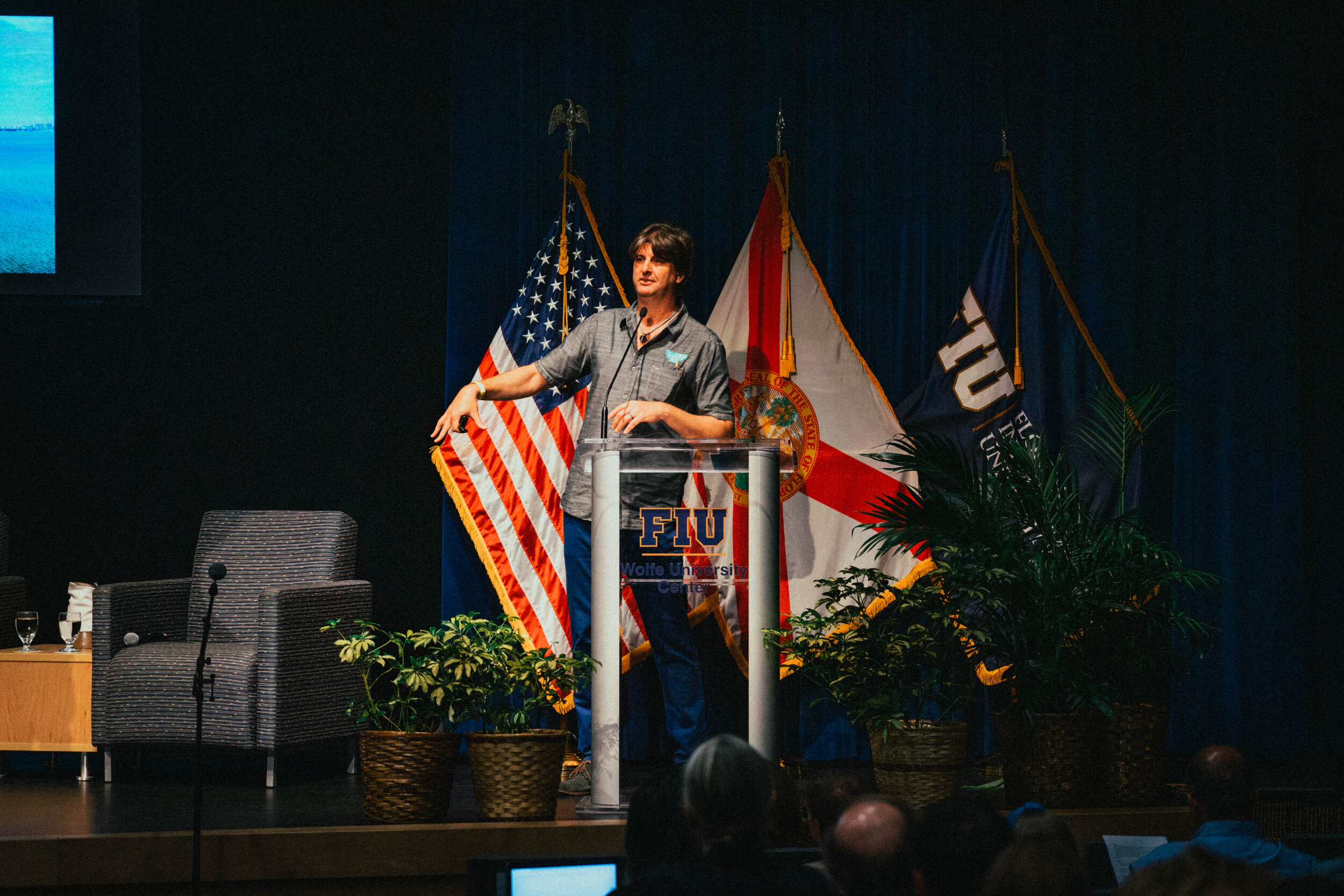
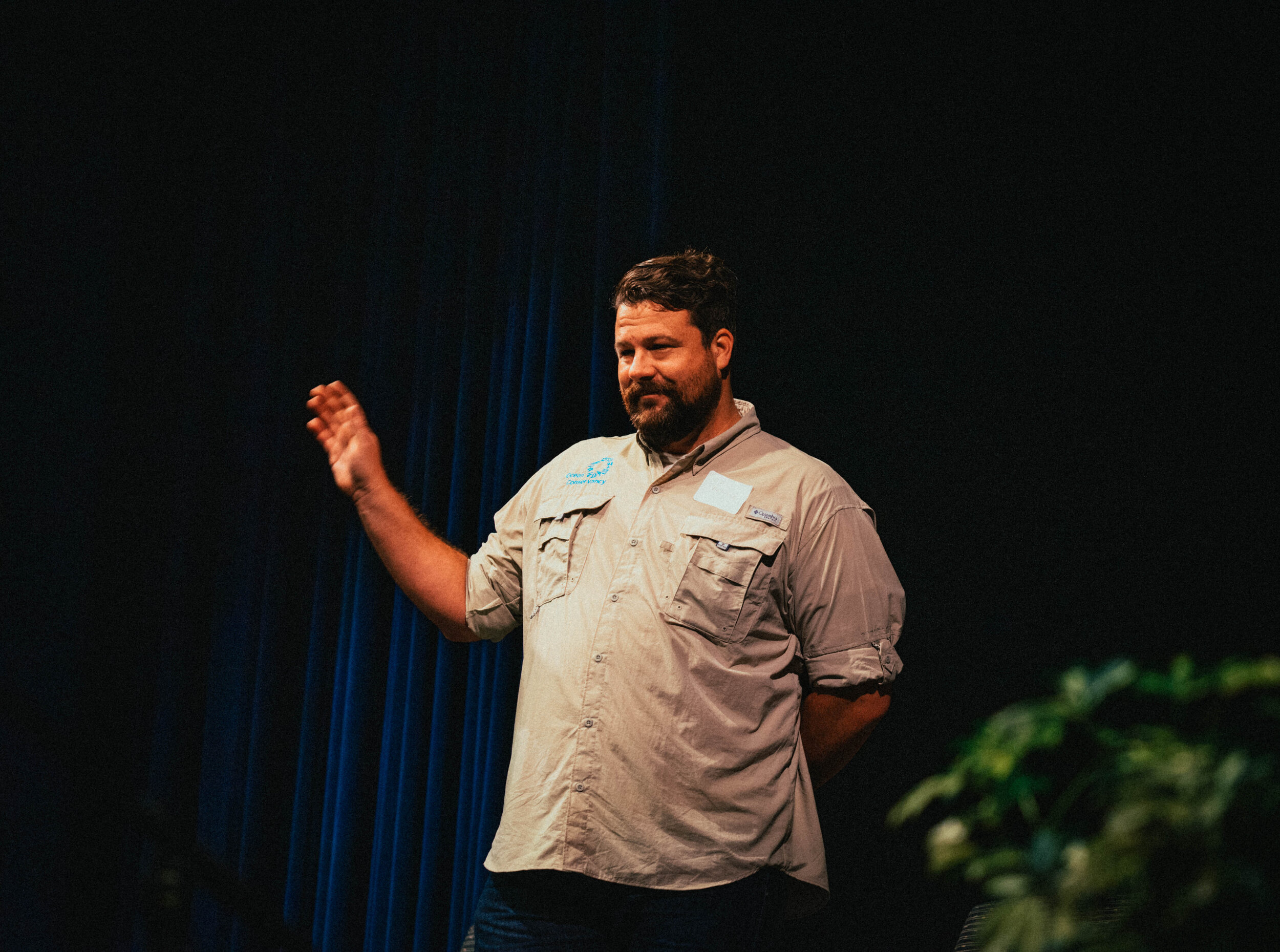
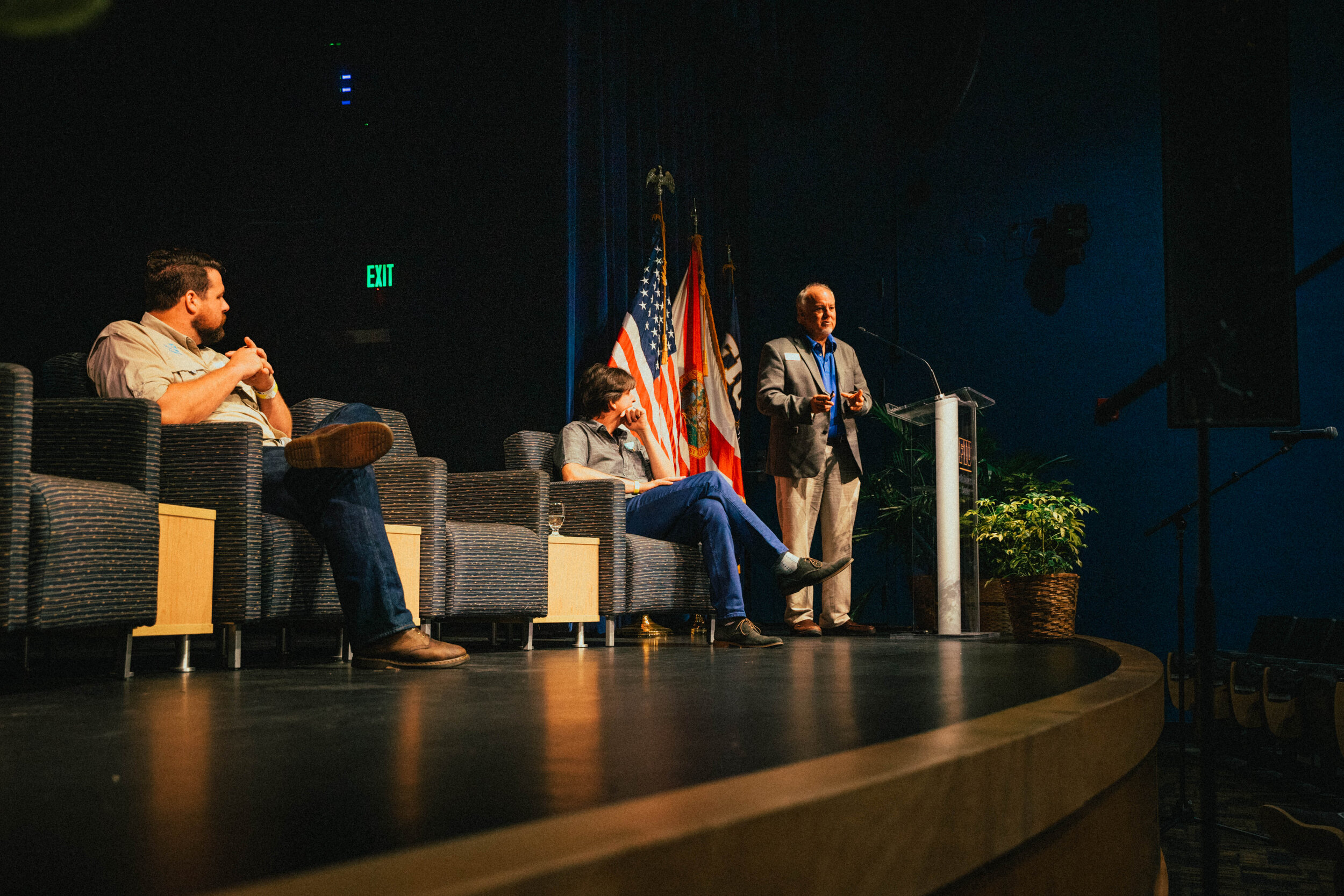
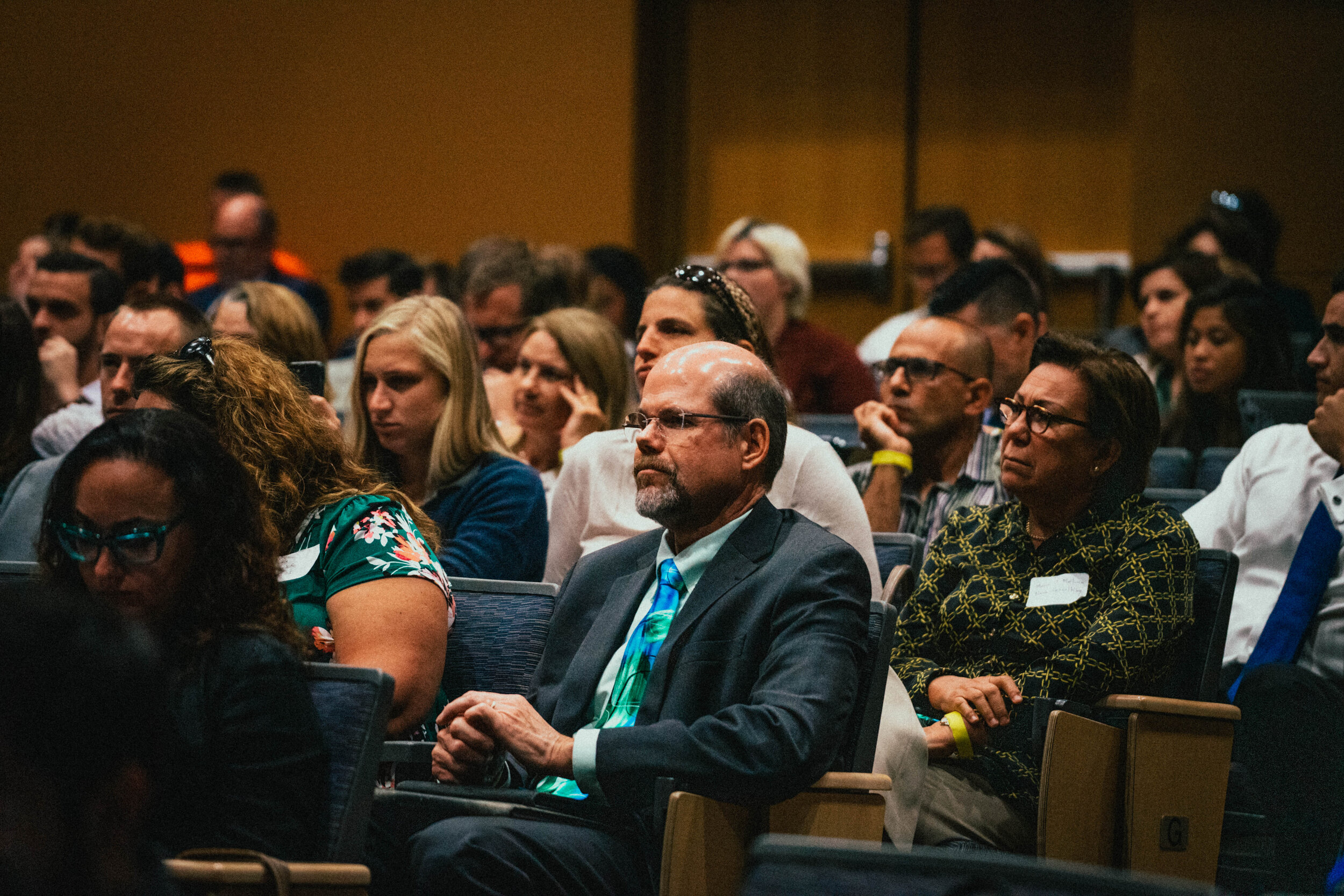
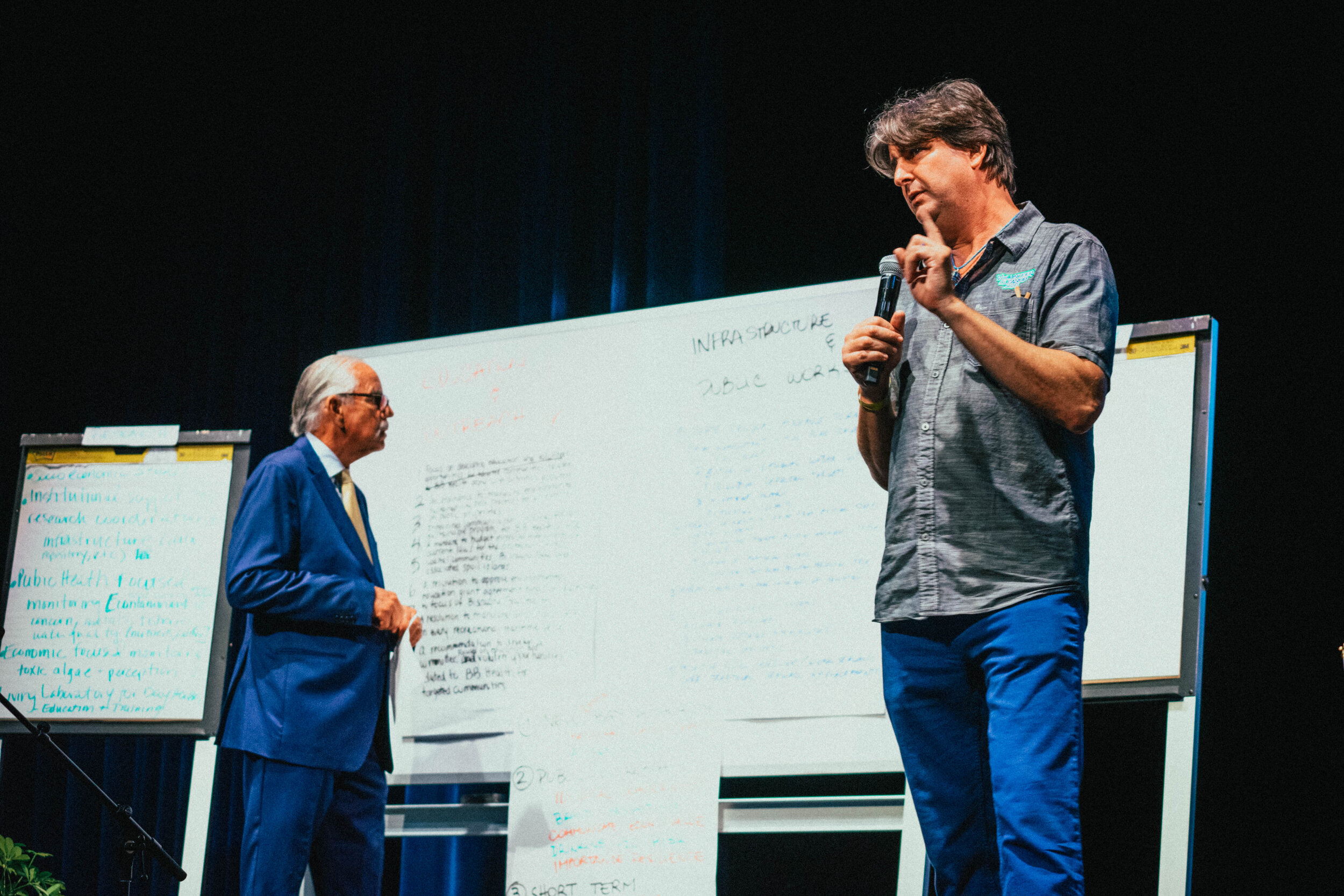
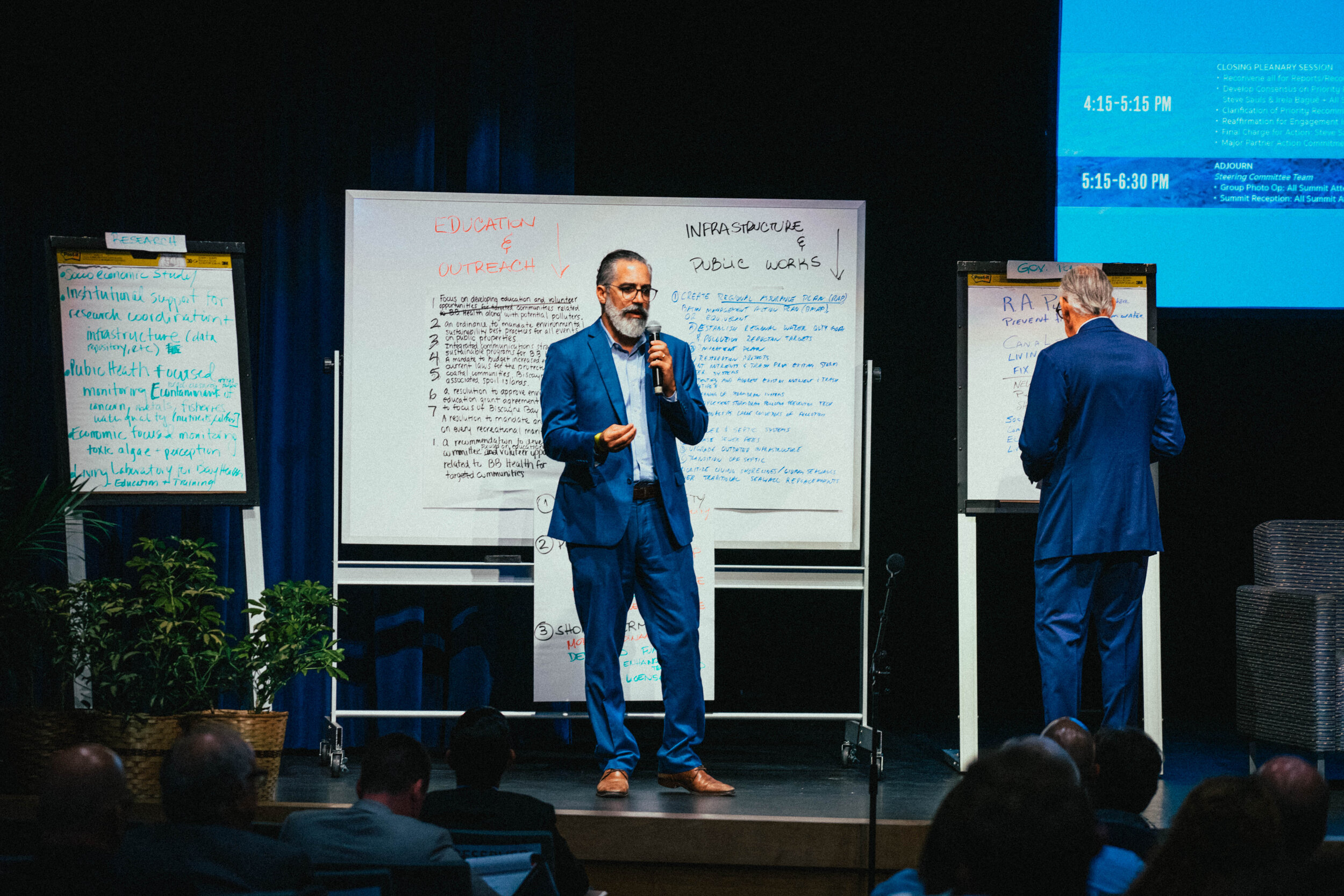
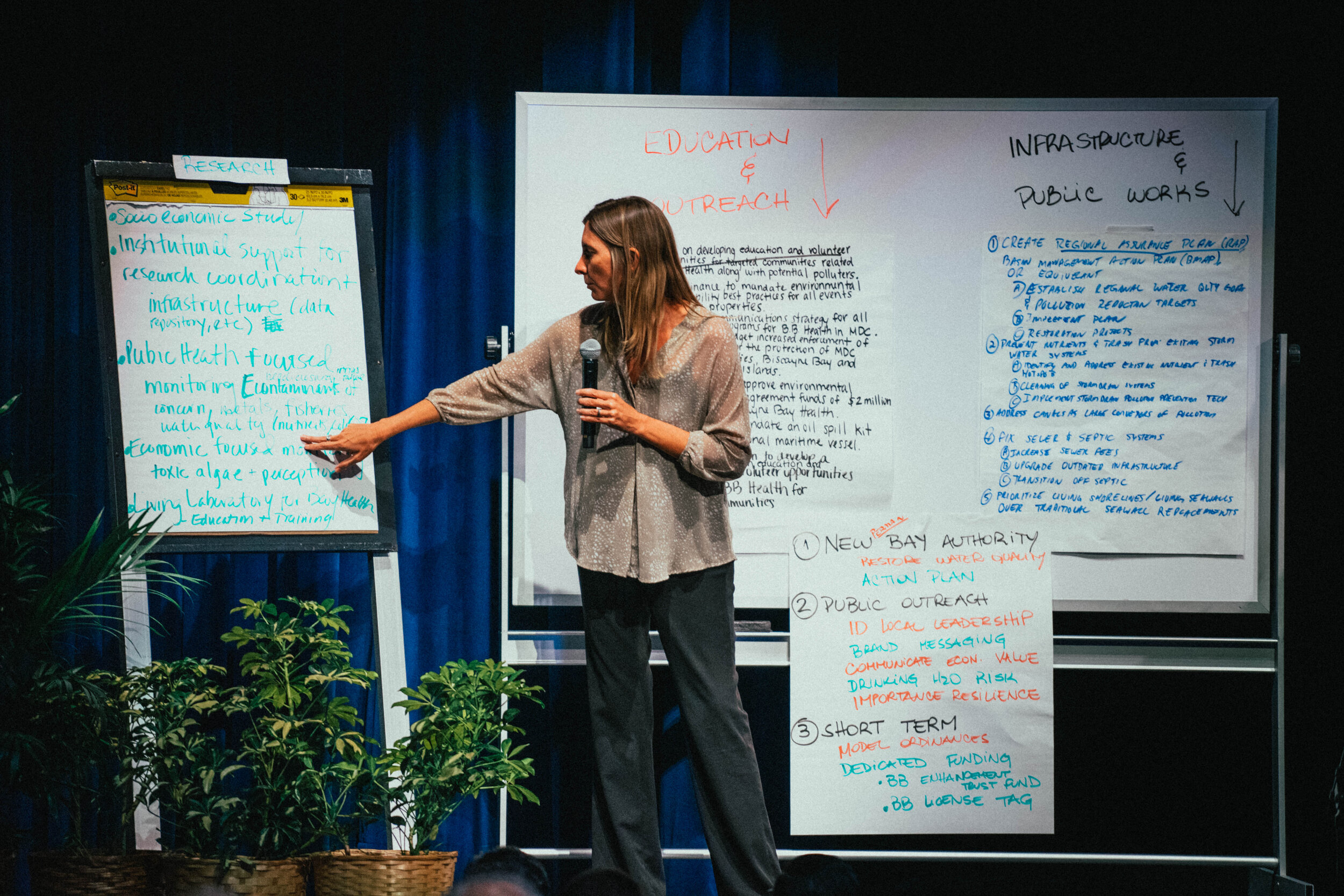
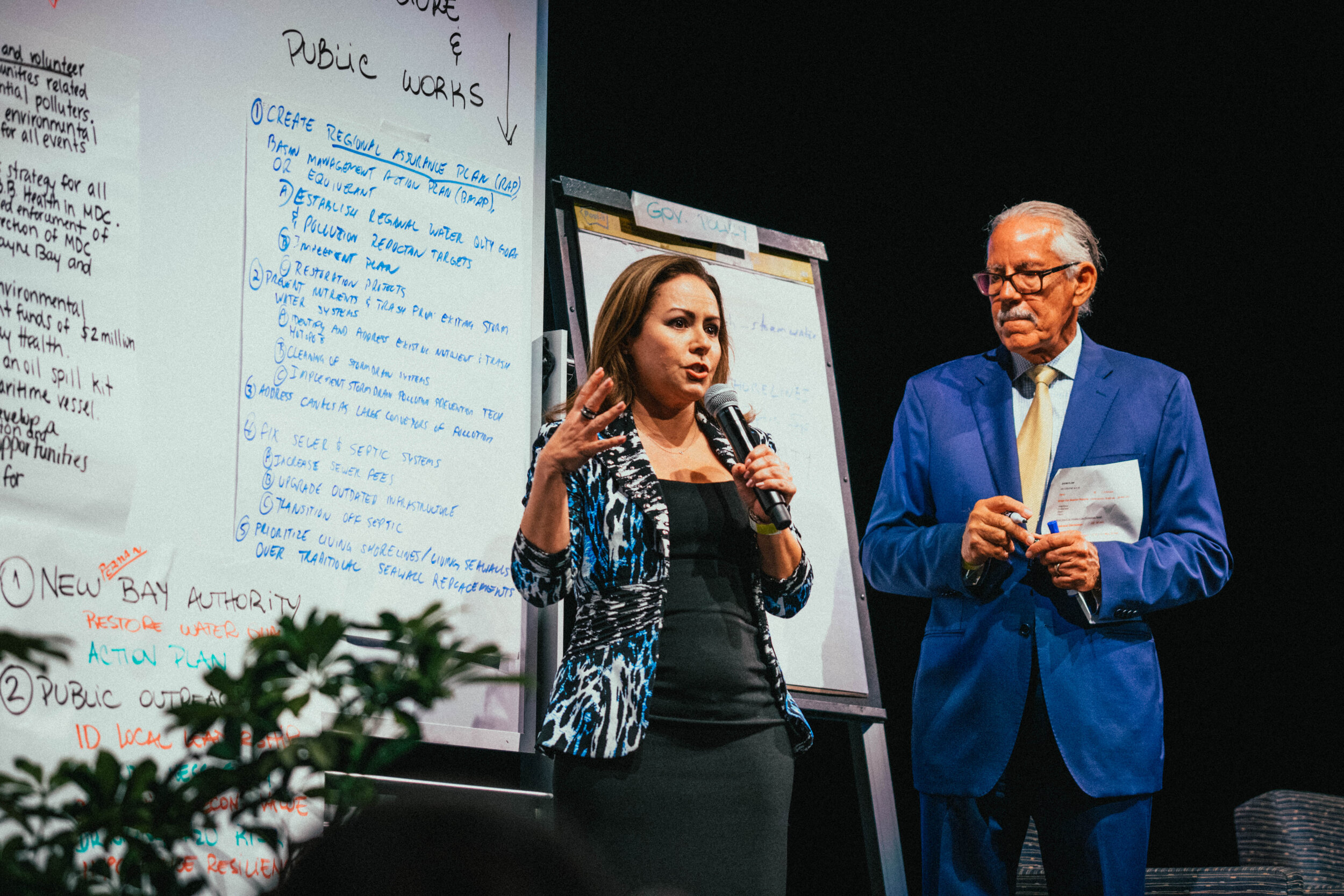
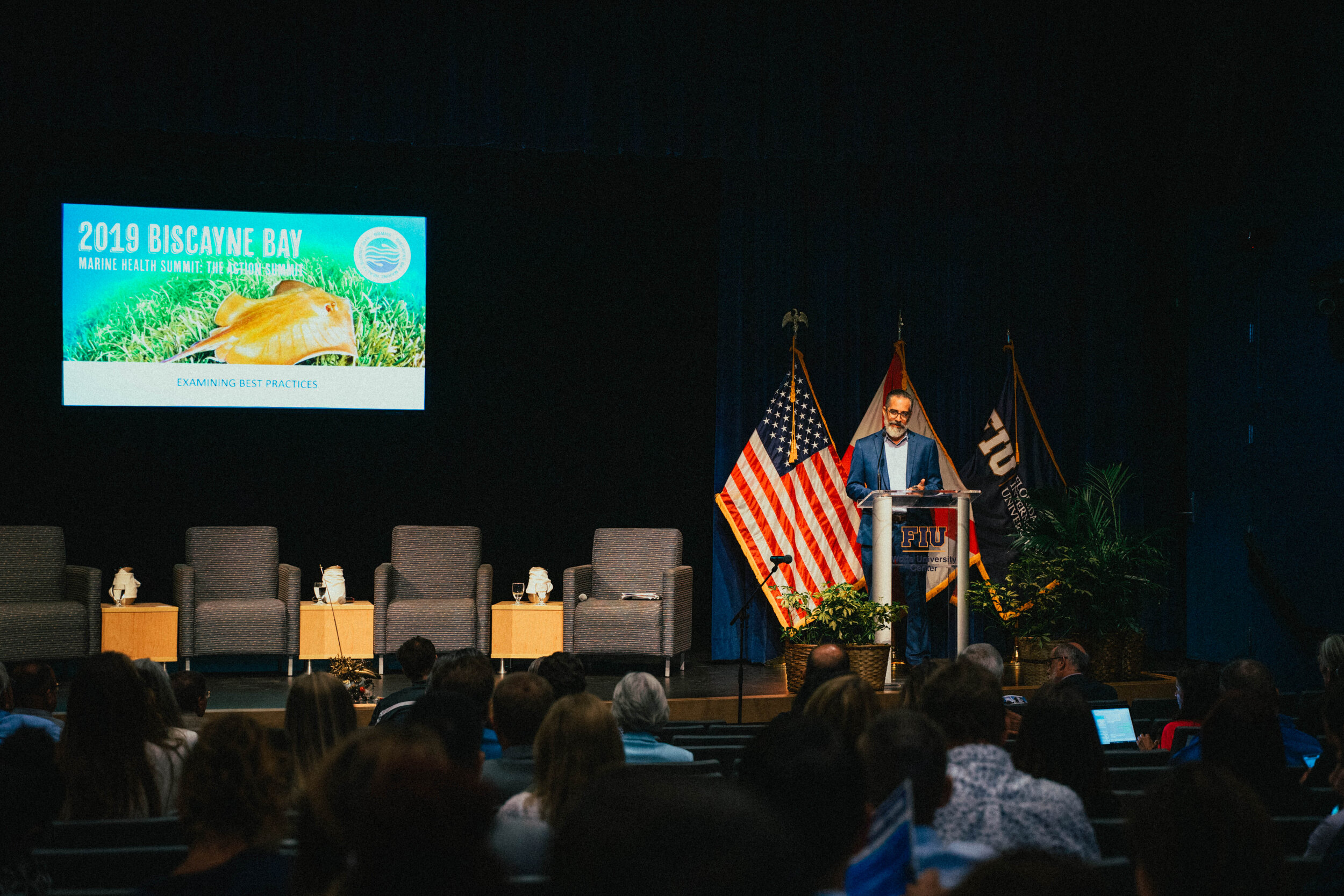
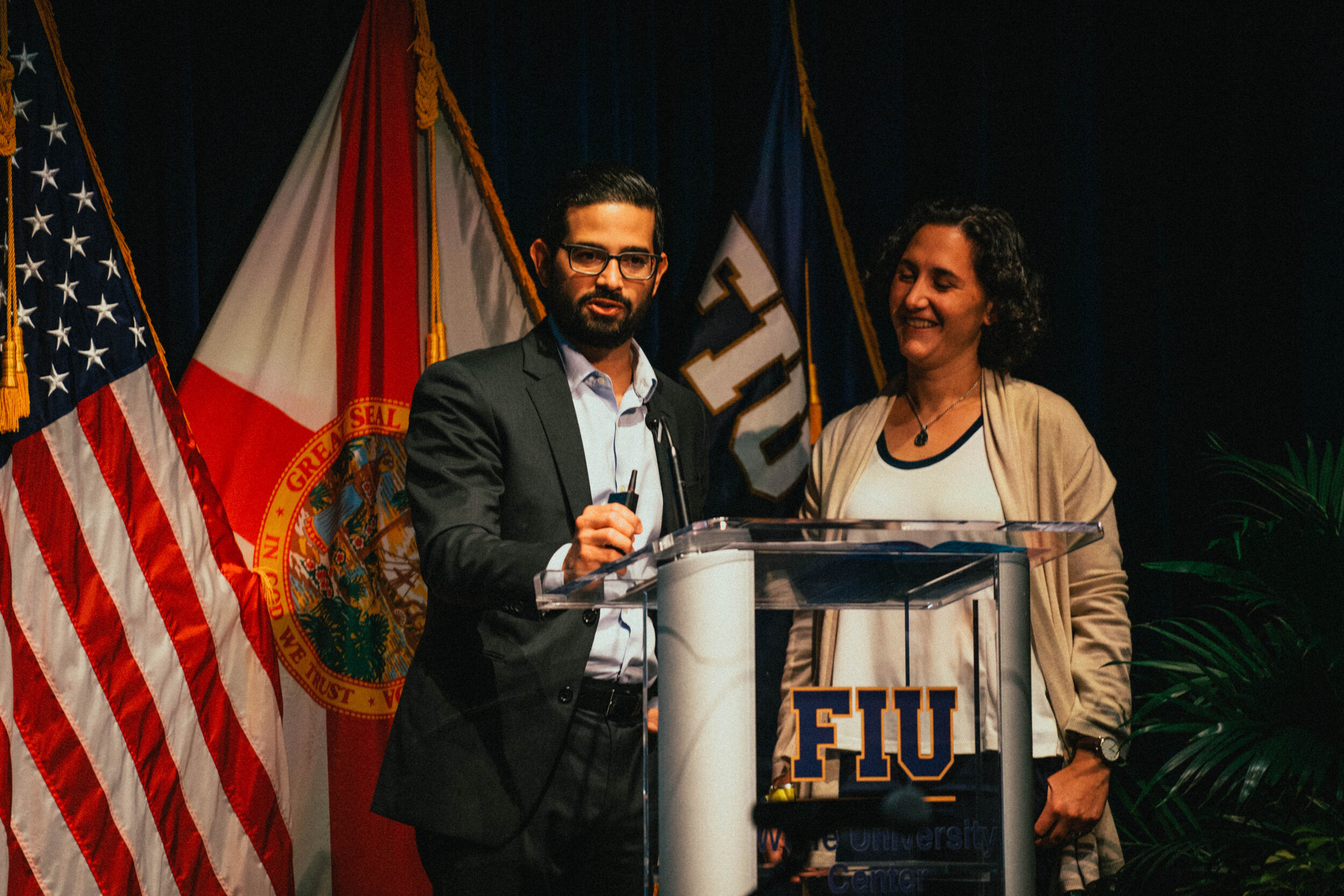
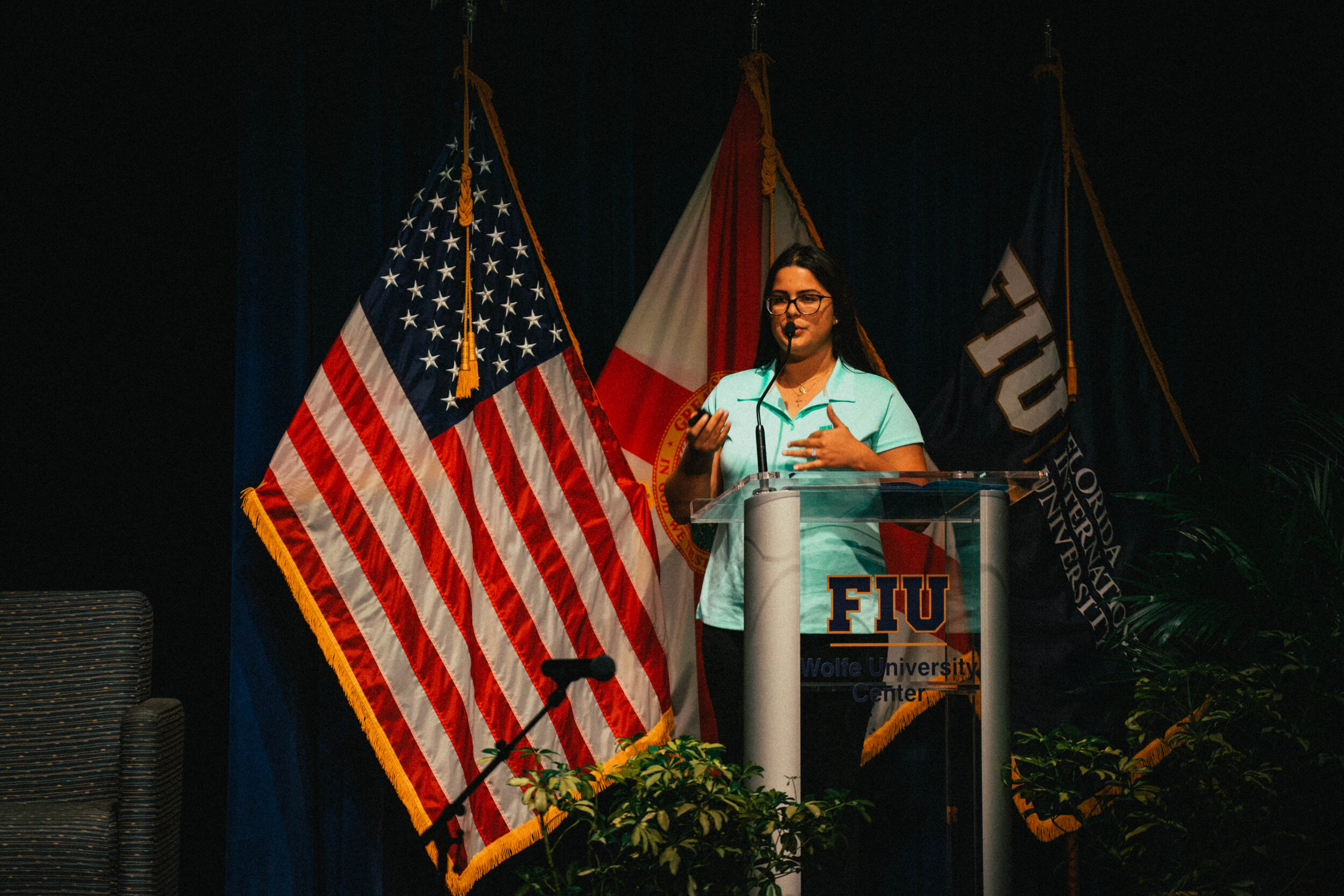
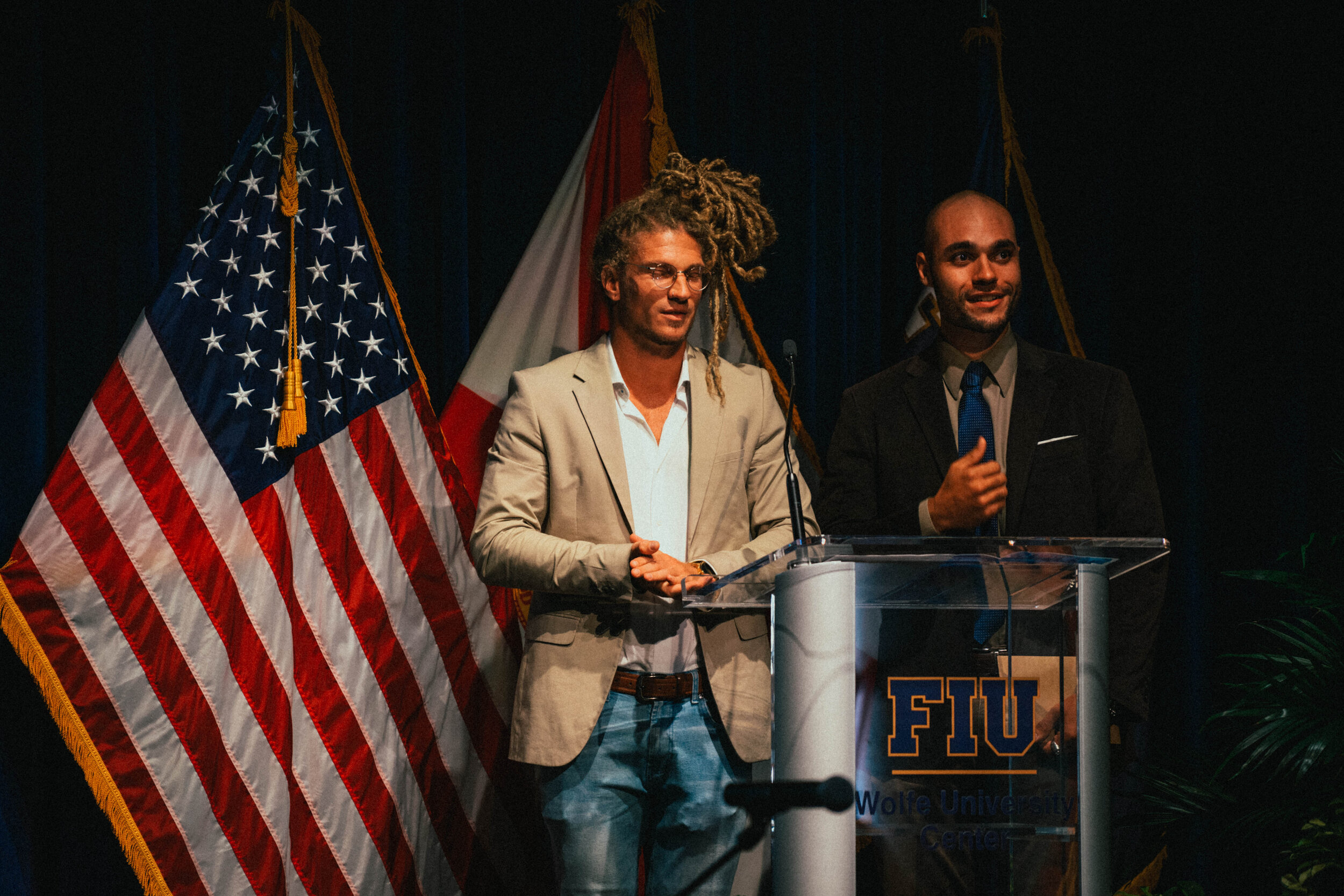
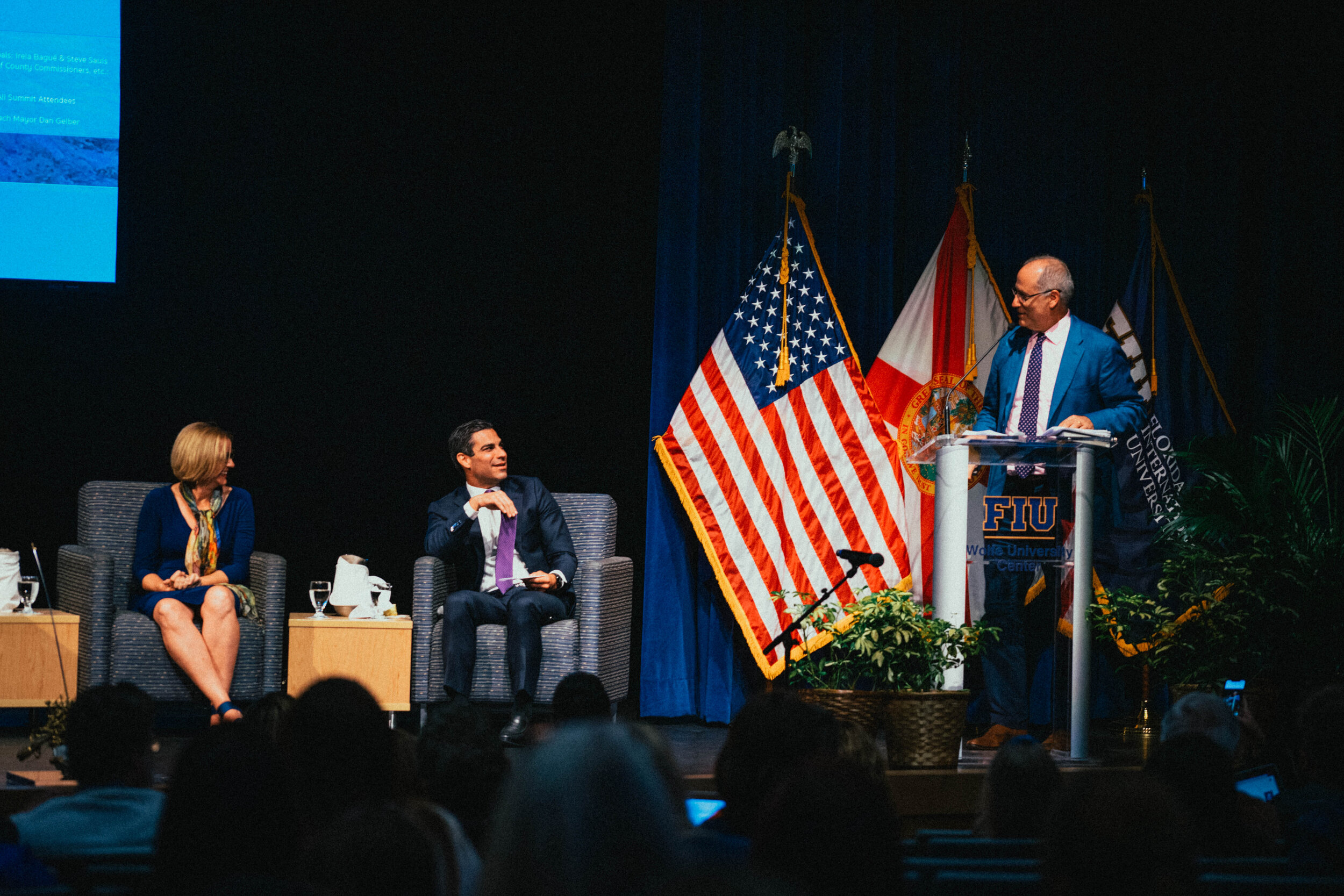
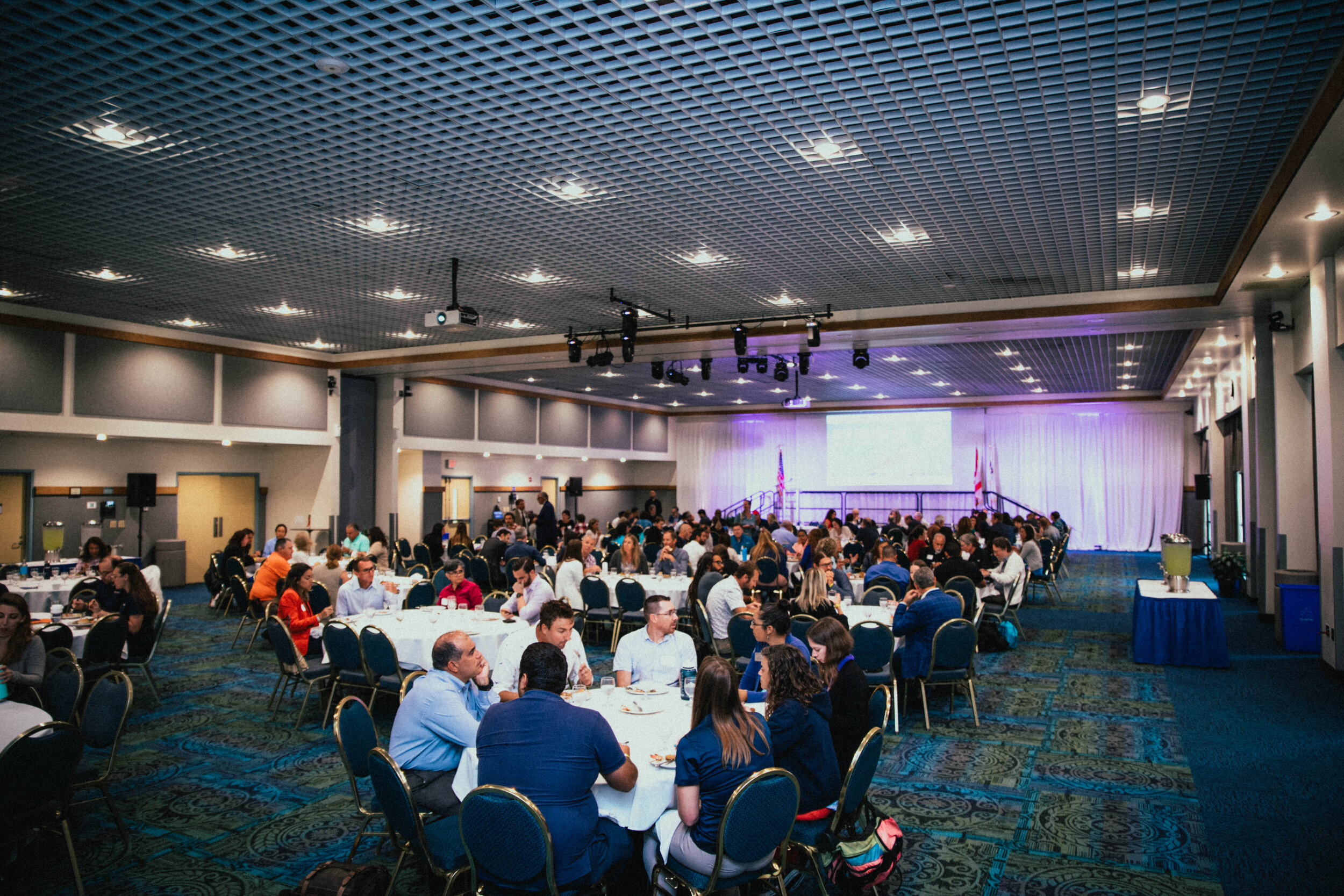
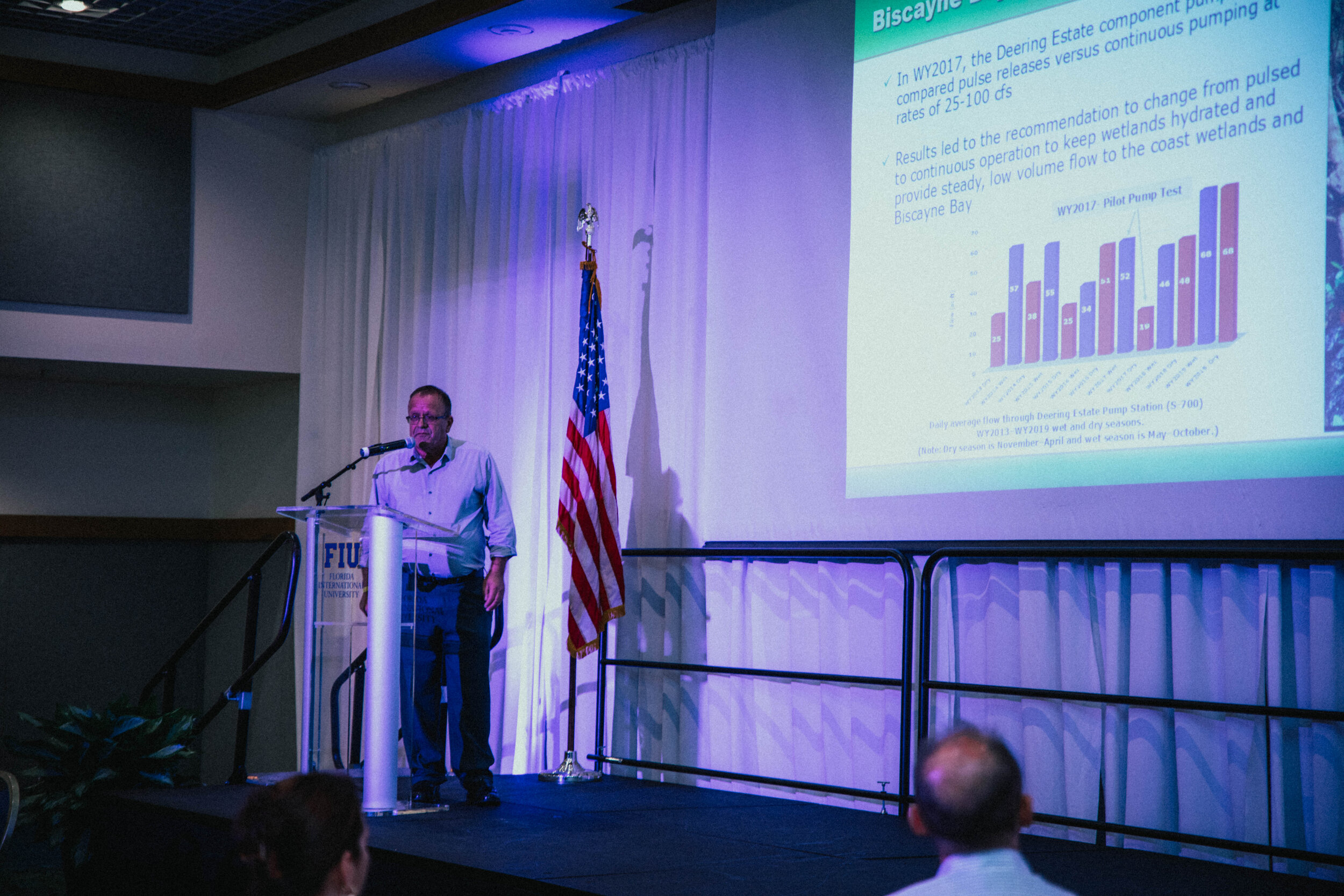
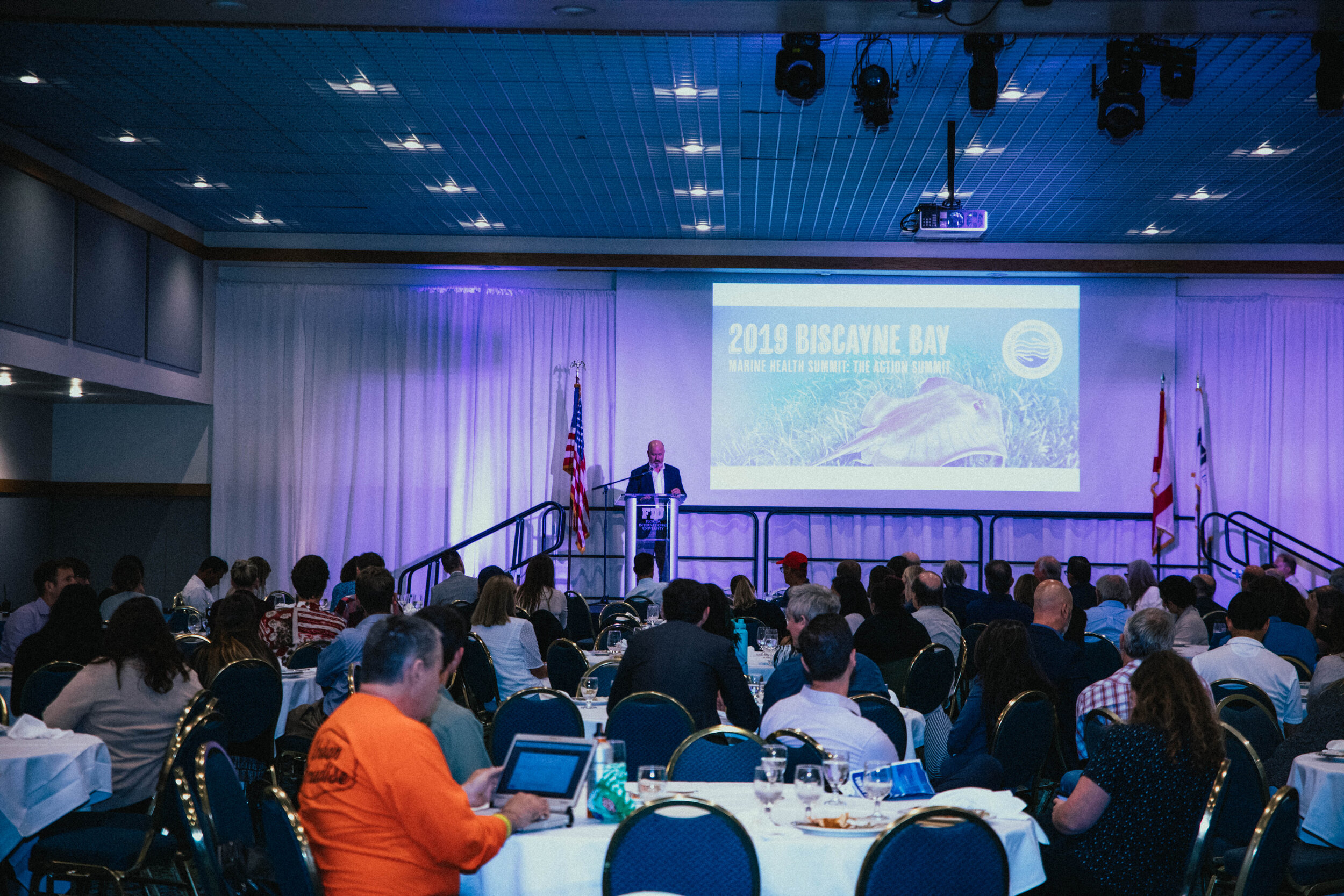
Click the titles below to view the recommendations for each Working Group:
+ Government Policy & Recommendations
- Establish Permanent Biscayne Bay Restoration Authority using working groups to:
- Serve as collaborative entity and advocate for Biscayne Bay health and restoration
- Restore Water Quality
- Develop Restoration Action Plan
- Implement best fast tract option of a TDML, BB MAP or RAP
- Development of mechanics to support/implement Summits
- Develop and Implement a Public Outreach & Education Campaign that will:
- Identify and leverage local leadership
- Deploy effective messaging
- Communicate
- Drinking water risks
- Importance of Resilience
- Bay Health Report Card Updates with data points across time
- Encourage Short-term Actions that Promise Results, such as:
- Model municipal ordinances that can be implemented and shared with other local municipalities.
- Authorization of Dedicated Funding for a Biscayne Bay Enhancement Trust Fund: Example: Biscayne Bay License Plate.
- Other shovel-ready innovative engineering infrastructure projects to enhance support living shorelines and coastal resilience
+ Infrastructure & Public Works
- Create Reasonable Assurance Plan (RAP), Basin Management Action Plan (BMAP), or equivalent
- Establish regional water quality goals and pollution reduction targets
- Implement plan
- Restoration projects
- Prevent nutrients and trash from exiting stormwater systems
- Identify and address existing nutrient and trash hotspots
- Cleaning of storm drain systems
- Implement storm drain pollution prevention technologies
- Address canals as large conveyors of pollution
- Fix sewer and septic systems
- Increase sewer fees
- Upgrade outdated infrastructure
- Transition off septic
- Prioritize living shorelines and living seawalls over traditional seawall replacements
+ Education & Outreach
The Biscayne Bay Marine Health Summit Education and Outreach Committee recommends to the Miami-Dade County Biscayne Bay Task Force and the Miami-Dade Board of County Commissioners to pass or execute policy related to the following motions for resolutions and ordinances:
- Declare Biscayne Bay an Environmental Health Emergency.
- Increase the budgets for the enforcement of current laws that protect Miami Dade County coastal communities, Biscayne Bay and associated spoil islands.
- Approve an environmental education grant agreement in the amount of $2 million to focus on Biscayne Bay Health.
- Create the Biscayne Bay Marine Health Community Coalition to help advance all sustainable programs in support of Biscayne Bay Health in Miami Dade County.
- Create a committee focused on education and volunteer opportunities related to Biscayne Bay Health.
- Mandate an environmental sustainability best practices for all events on public properties.
- Mandate an oil spill kit on every recreational maritime vessel.
+ Research & Research Needs
- Conduct a socioeconomic study of Biscayne Bay ecosystem services.
- Secure “bold” institutional support for research coordination, implementation and application including
interdisciplinary research and data infrastructure:
- Create “a world-class research and monitoring system for a world-class city” that is proactive, preventative,anticipatory and equitable.
- Prioritize Biscayne Bay research and monitoring using a community resilience lens and quality of life
outcomes:
- Public health-focused research and monitoring outcomes – examples: increased temporal and spatial frequency of nearshore and real-time monitoring of contaminants of concern, beach closures, infrastructure failure incl. septic, metals, water quality (nutrients, coliform) and circulation/dispersion of those contaminants from the source; relate to hospitalizations and other health indicators; pollution affecting consumed recreational/commercial fish
- Economic-focused research and monitoring outcomes – examples: toxic algae/pathogens/water quality and perception e.g., translating real-time monitoring to communication campaigns – SE Florida is open for business and your health is not at risk; value of recreational fisheries and water quality/bacteria impact; real estate/property values, hospitality and tourism industry and water quality/bacteria impact; direct BB-based jobs e.g., ecotourism, water taxi
- Recreation-focused research and monitoring outcomes (interrelated with economy and health) – examples: plastics and polluted water destroy aesthetics and ability to connect with nature; quality time spent kayaking, snorkeling, paddle boarding, boating with friends and family depend on good water quality, to view productive seagrass and benthic/marine organisms and how these organisms are affected by pollution; management plan that connects coastal habitat degradation and loss with waterway/shoreline access
- Create a Living laboratory for Bay health:
- Train and inspire the next generation of scientists, eco-engineers and environmental stewards through sustainable/resilient policies, business practices, etc.
Photos credit: FIU flickr photo album More photos available on the Biscayne Bay Marine Health Summit facebook page.
2019 summit presentations AND Additional RESOURCES
Click the links below to download slides/documents
Panel Presentations and Additional Resources
Press Coverage
Click below to read articles
2019 SUMMIT SPONSORS
2019 Coalition Building Meeting
July 9, 2019 at the FIU Miami Beach Urban Studios in Miami Beach, FL
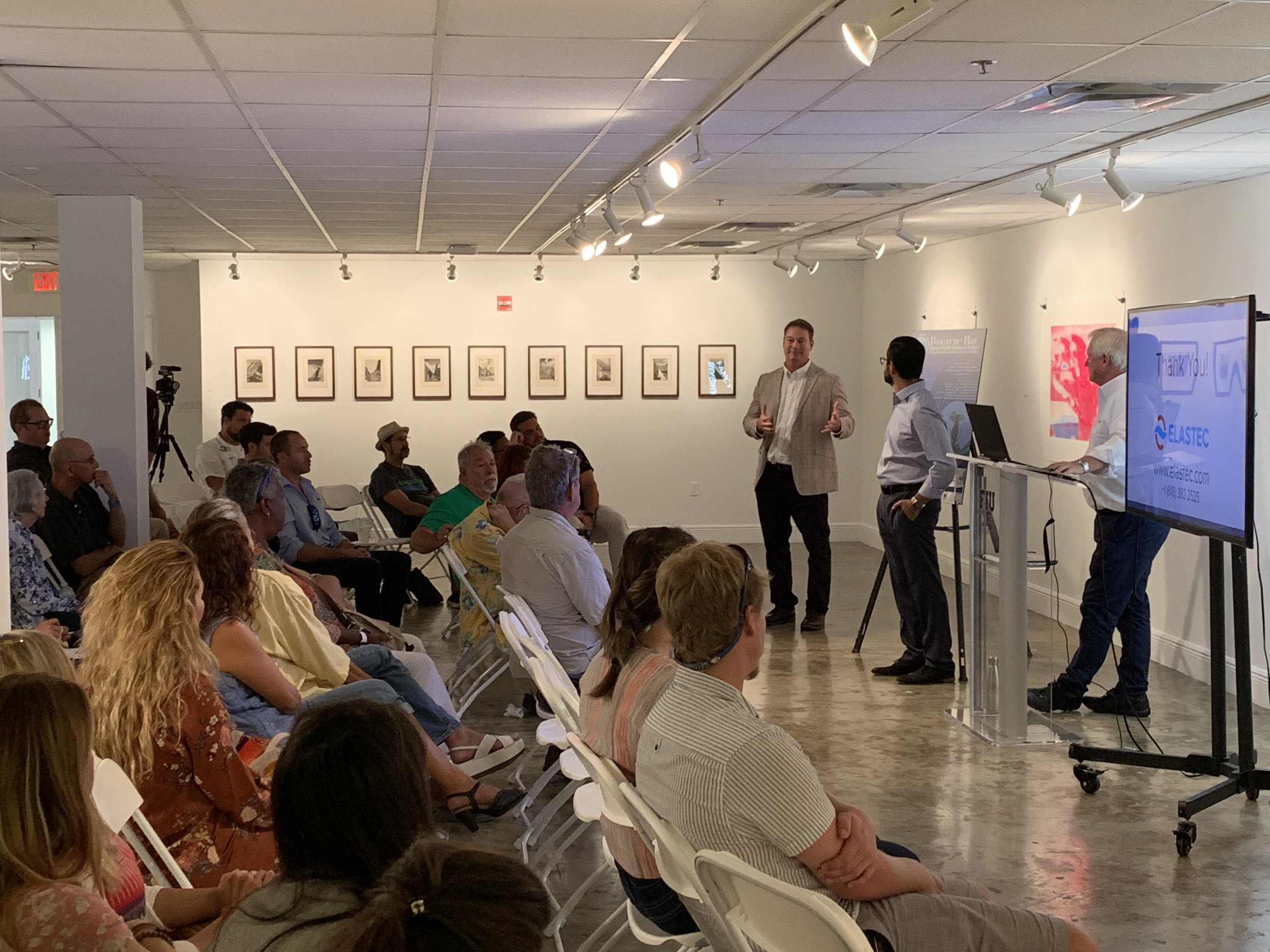
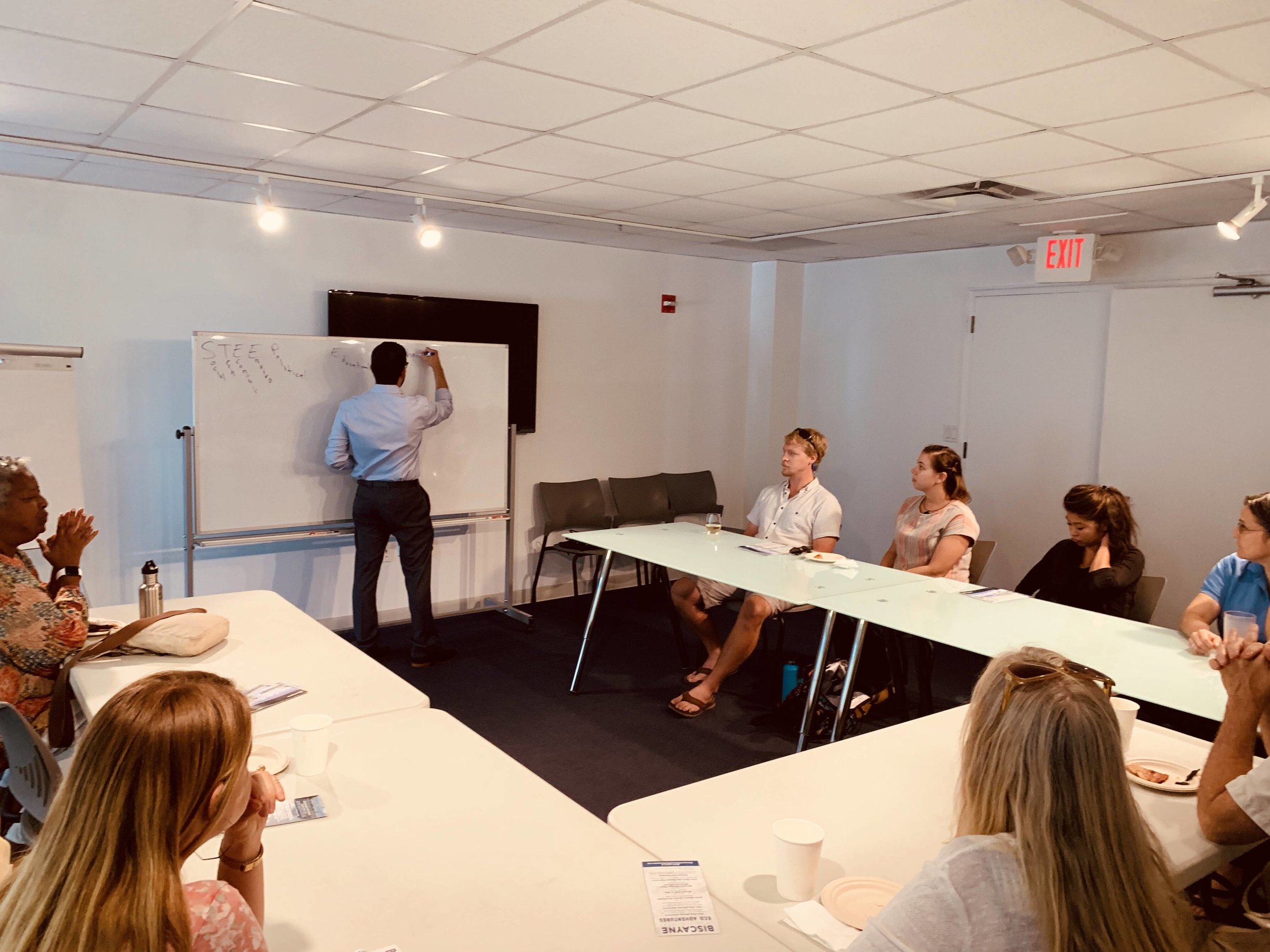
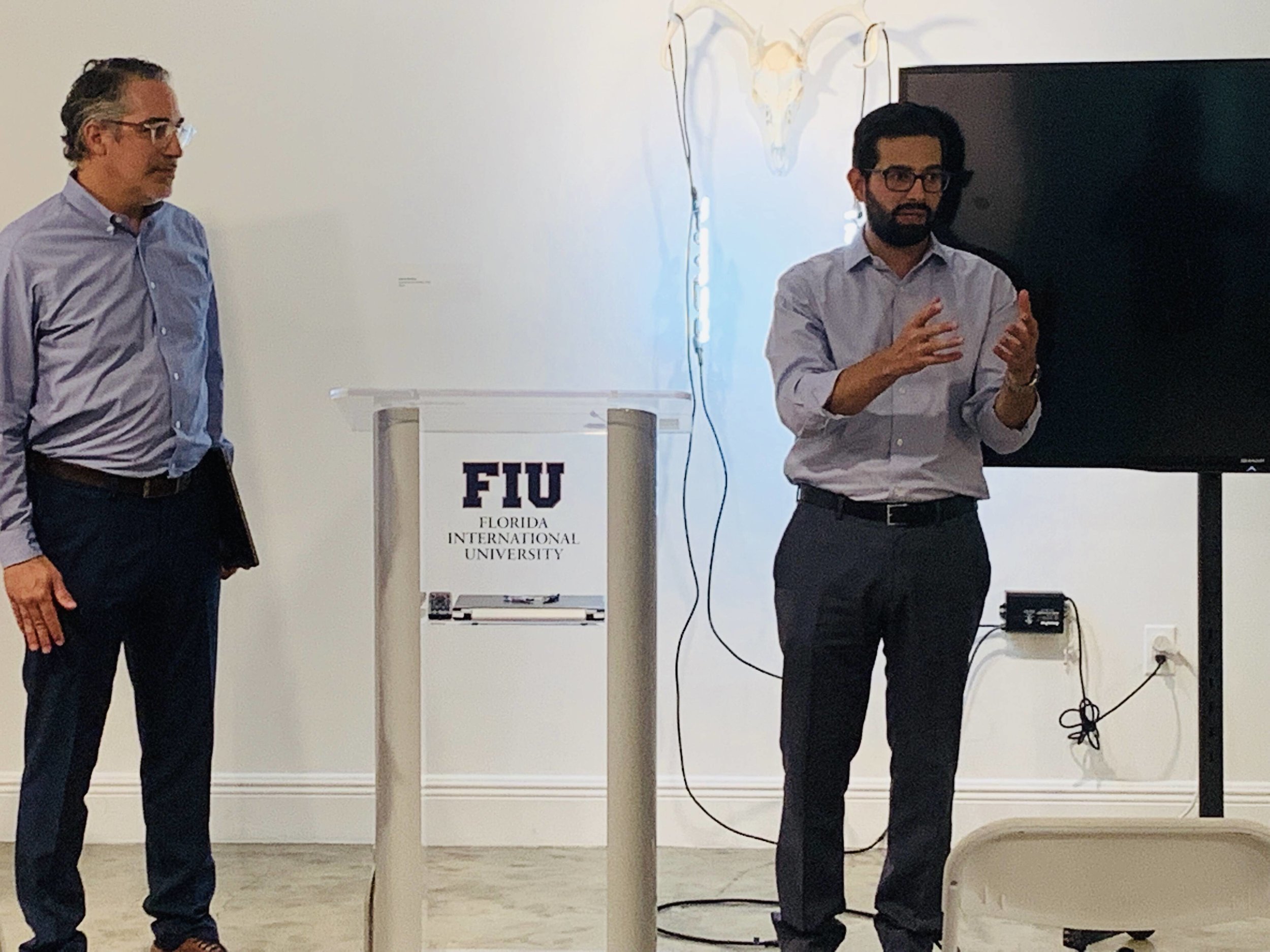
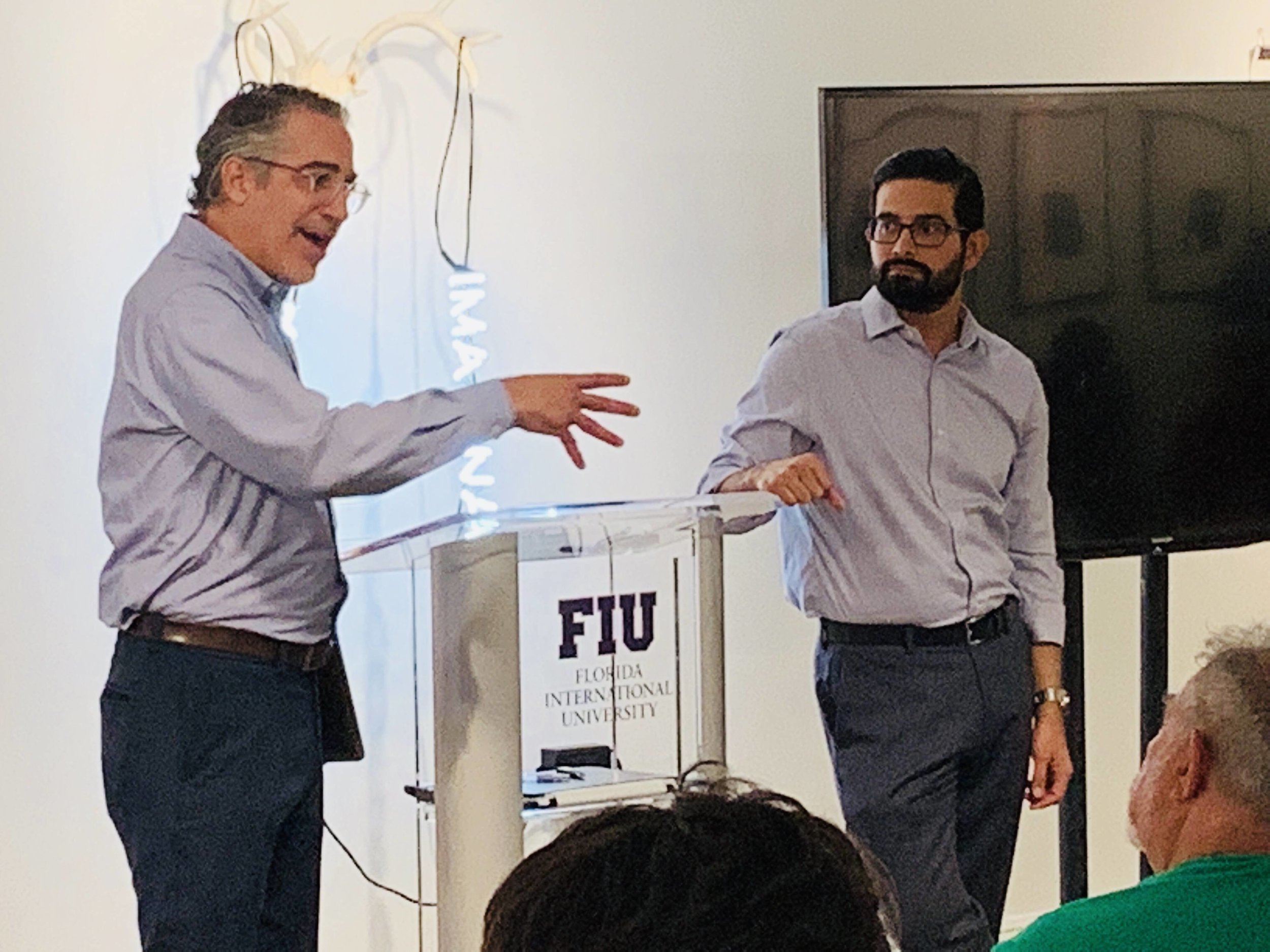
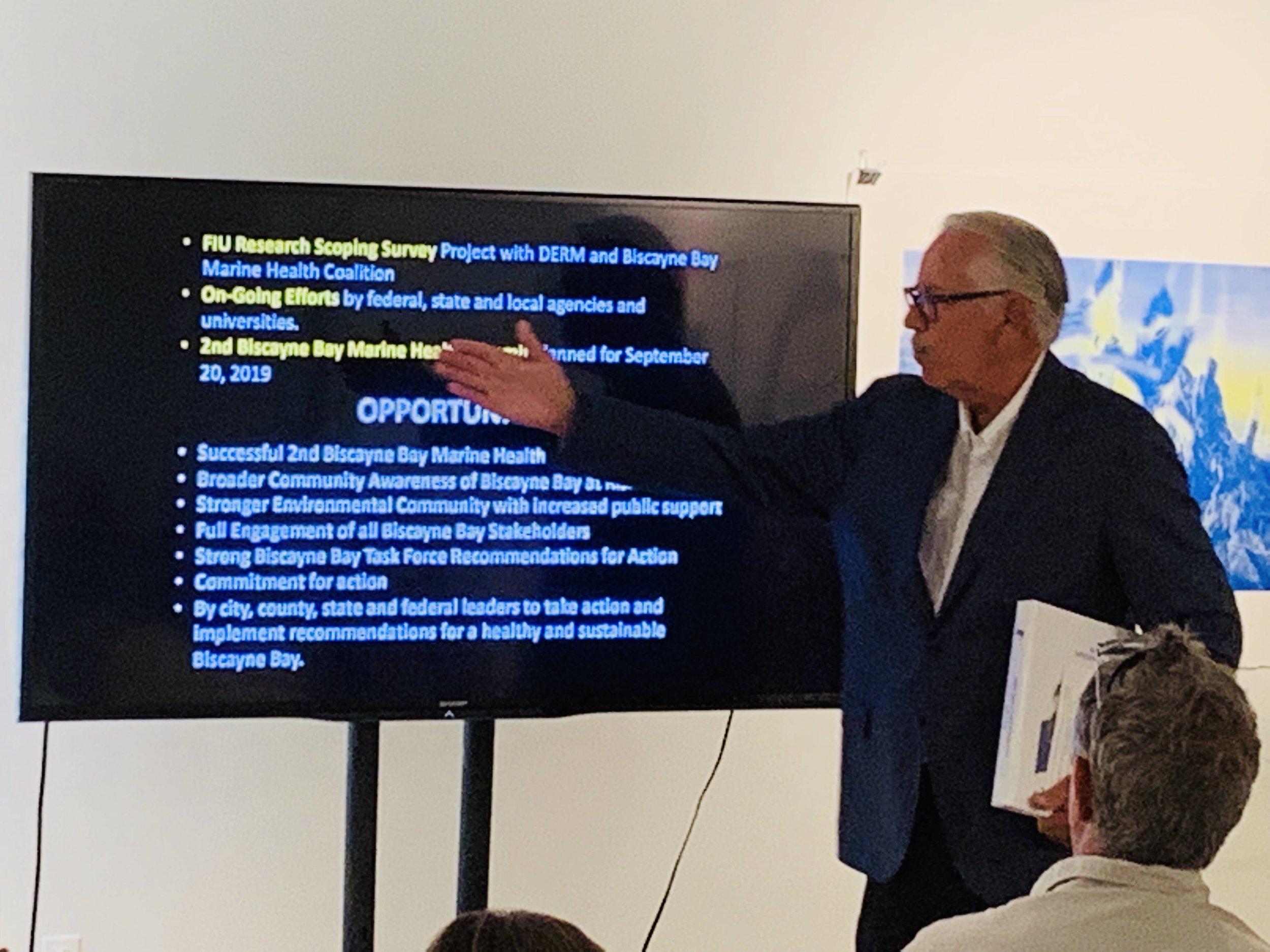
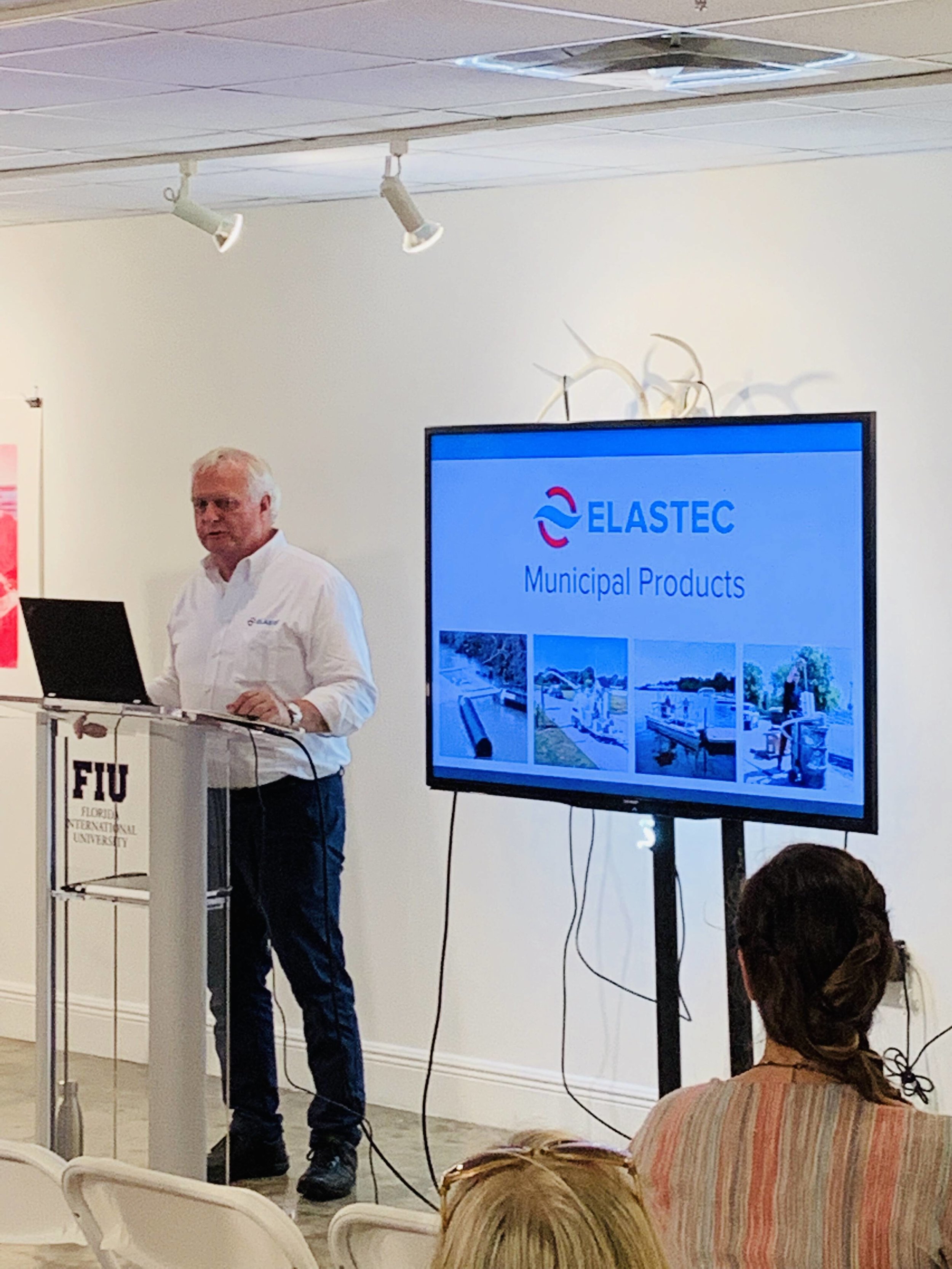
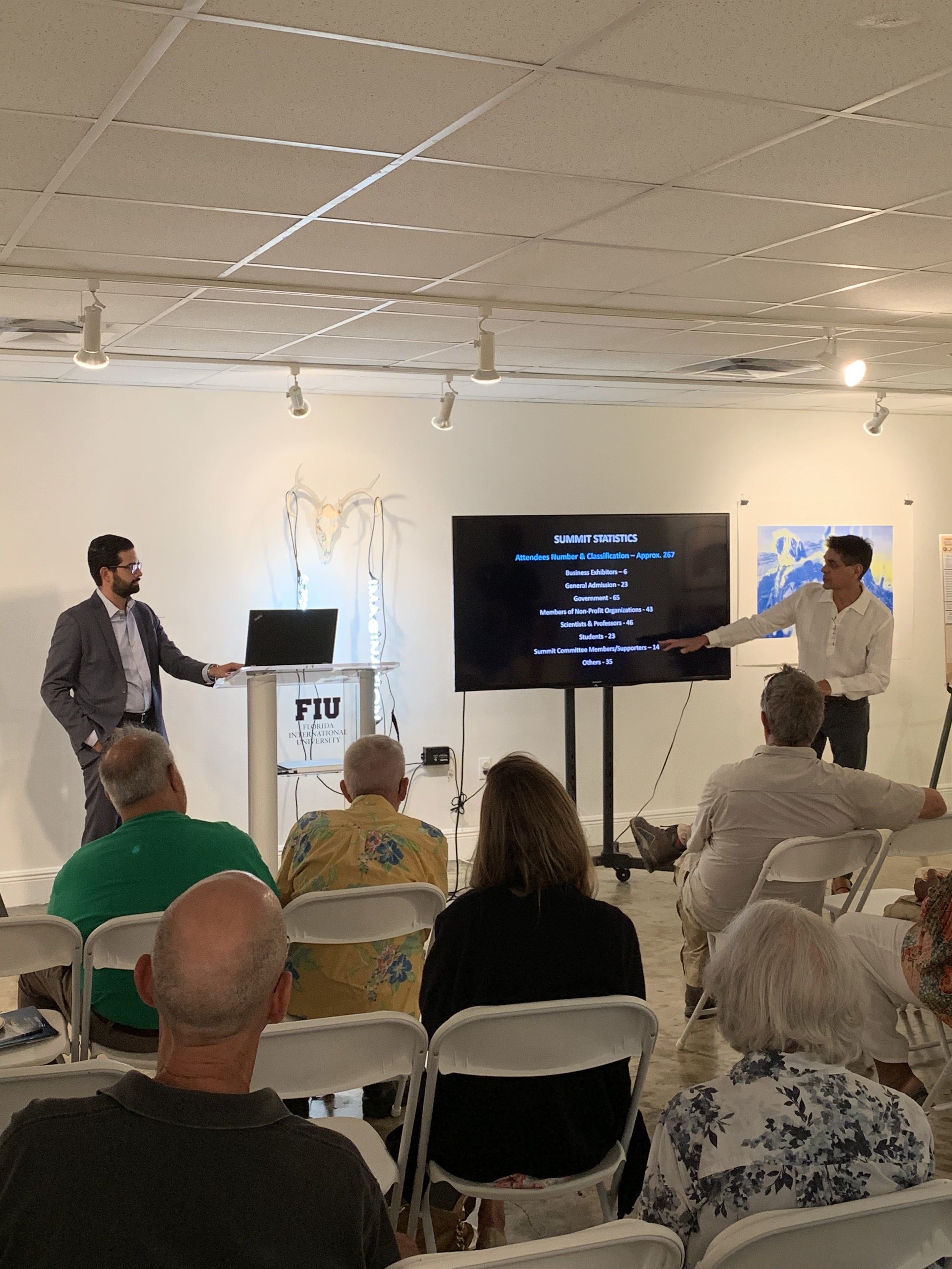
Learn more about the 2019 Coalition Building Meeting
Presentations from the event
2018 summit Strategy Meeting
May 31, 2018 at the FIU Miami Beach Urban Studios in Miami Beach, FL
Goals of the Coalition Meeting
Discuss Summit Recommendations and pending restoration proposals and how they relate to our BBMHS efforts:
The Biscayne Bay Task Force– Resolution sponsored by Commissioner Rebeca Sosa
The Biscayne Bay Restoration Initiative– by the SFWMD
Celebrate work that is being doneto heal the bay;
Update attendees on action since the Summit including issues pending before the Miami-Dade County Commission;
Initiate discussions towards the implementation of the 2018 Summit.
Attendance
A total of 35 professionals attended including:
Elected officials
Government staff
NGO representatives &
Business leaders
All of whom were interested in addressing issues affecting the Biscayne Bay area. At this point, Biscayne Bay Marine Health Coalition activities remain an all-volunteer effort. That's why attendance is so important. Together, we can make a difference and move our shared vision forward.
Summary of the Breakout Group Actions
Coordination and Policy
Facilitated by Steve Sauls and Irela Bagué (Bagué Group) - Harmonizing and Leveraging existing initiatives and stakeholder groups in order to assist in the structure for a 10-year Action Plan (i.e. BB Restoration Initiative, Lake Worth Plan, BBRCT, Coalition)Bay Health Monitoring
Facilitated by Tiffany Troxler (FIU) - Develop a research plan for assessing Bay quality health and progress assessment.Bay Health Supporting Projects and Strategies
Facilitated by Albert Gomez (IC Assemblies) - Identify eco-technological, land-use and planning opportunities to improve bay health, access and useCommunications, Outreach and Education
Facilitated by Dara Schoenwald - Develop a communications strategy to involve the community
2017 Biscayne Bay Marine Health Summit: The Inaugural Summit
June 28, 2017 at the Florida International University (FIU) Biscayne Bay Campus in Miami, FL











